|
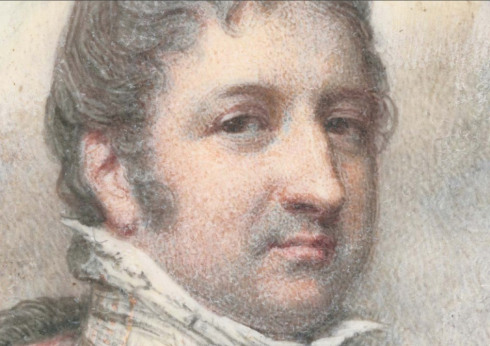 490x346 Louis Philippe de Bourbon, "Citoyen Unité" I do find it ironic that a confirmed murderer (de Sade) is against the death penalty. Or maybe not, as de Sade tends to prefer more unique methods of punishments. While I will defer to the wishes of our Prime Minister and President, I do not suggest passing the Traitor Act in its current form. Such a proposal would be seen as an act of population transfer, especially one directed at the Breton population. It would have been just as discriminatory as the "de Sade" taxes, and twice as unfair. You cannot remove a population from its territory. You just can't. And the nobility would probably not want to see their descendants stripped away and forced to work as slaves. In fact, the only reason I'm even considering the wishes of a madman is due to the fact we have lost a very valuable colony, Haiti. While we will eventually recover a province in the near future, for now, we must try to recover our prestige and our economy. I'm not sure exactly how defensible Louisiana would be without the ports of Haiti though. For now, I will propose the Punish De Sade Act which will find de Sade guilty of banditry, murder, and depravity. De Sade's punishment is that he must pay an annual tribute to the French government (which will be paid with the wealth from Louisiana) and he must never lay foot on Metropolitan France for the rest of his life.
|
| # ? Nov 22, 2012 17:40 |
|
 Just a reminder that the turn is due in about 22 hours. Feel free to turn them anytime before that. Just a reminder that the turn is due in about 22 hours. Feel free to turn them anytime before that. 
|
| # ? Nov 23, 2012 01:19 |
|
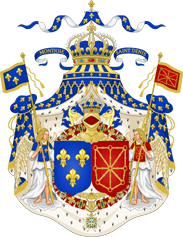   Louis Stanislas Xavier, comte de Provence, Commander of L’Armée des Princes, Regent of the Kingdom of France and Navarre, acting in lieu of His Most Christian Majesty The King, Louis XVI Jacobins try to force the blame for this war of counter-revolution on Austria and Prussia, but in reality the blame falls solely on the Jacobins and other radical republicans themselves. Yes, the Holy Roman Empire declared war, but who was it that created the chaos that so outraged the Austrian court? It was the Jacobins! And let's not pretend that they did not know exactly what would happen. The Declaration of Pillnitz made it exactly clear what would happen when the royal family were harmed. And did the radicals care? No! They did not! But even after the war was declared, His Imperial Majesty The Holy Roman Emperor gave Paris a chance avoid bloodshed. Were these terms harsh? Yes, of course they were! I don't think anybody doubts that. But did the Jacobins even try to negotiate! No, they did not! They ripped up the proposal to shreds and defecated their violent republican nationalism upon it! The republicans chose to have this war! And now, look at what they do. Their tax rates, of up to sixty per-cent, are theft! When they are done taking your land and your wealth, they take your sons and have them fight for their "republic"! Is this just? Of course it is not! There is only one just fight in France, and that is the fight to defend Louis XVI, Louis XVI's France, and Louis XVI's Brittany! The fight for justice has no borders! Loyal and just men can be found in France, Brittany, Austria, and all of Europe! Long live Louis XVI! Long live France! Down with the revolution!
|
| # ? Nov 23, 2012 02:52 |
|
Saint-Just I have to admit I don't understand the proposals of Citizens Sade and Napoleon. They want to take known enemies of France, and rather than giving them justice, ship them to some far off land where they can plot without being noticed. Have we learned nothing from the affairs of Saint Dominque? Did not the slaves there do just that, far from the watchful eye of Metropolitan France so that when they rebelled, everyone was taken by surprise. What slaves can do, traitors can do to. No, I say instead what we do with Louisiana is set up a Colonization Society, which offers free land to the rural peasant, and yes, the urban sans-culotte, too, who is willing to go there and tame and work the land. Louisiana is a rich, verdant land, we are told, full of resources and ripe for the plow. Can we not utilize it to solve France's food shortages? And doesn't France benefit if the poor are able to utilize their industry and have the opportunity to become productive and accumulate a decent living through their own hard work and thrift? Do we not owe those who would take it the opportunity to do it? Further, we have confiscated land from those nobles who betrayed France. Should not the peasant who works the land have the opportunity to own the land. So, I propose that noble lands be sold to the peasants who work them, purchasable on installment at rates no higher than the peasants pay now in rent, for a fixed term of five years or until the value of the land is paid for, whichever is less. At the end of that term, those lands will be the peasant's to do with as they wish, to grow what they wish and sell what they grow with all of his profit and loss to go to him. He will be peasant no longer, but a free yeoman. I urge you to adopt this Land Reform Bill
|
| # ? Nov 23, 2012 05:01 |
|
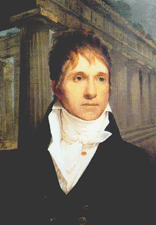 The capture of Louisiana by Napoleon and de Sade was a great stroke of fortune for the Republic. In these strained times, however, I would like to recall the judgment given in antiquity to Hannibal, the great general of Carthage: it is said that he knew well how to win a victory, but knew nothing of what to do with a victory after having won it. I must recommend against these proposals to send colonists, willing or unwilling, to Louisiana, at least at the present time. I am not unfamiliar with the geography and climate, which, in much of that region, resembles one of Dante's warmer circles. Much of the land that is easily reachable by sea is utterly unsuitable for raising crops, being comprised of a great bayou. While farmland does exist further inland, you must consider the early history of the American colonies - starvation and war against the natives were commonplace. While some men may think these hazards no great consequence and emigrate, I submit that there is a subtle difference between allowing the possibility of colonization and presenting a government policy encouraging it. If the government encourages colonization, then by any moral standard, it will fall to the government to protect and defend the colony, as well as keep it supplied and ensure the colonists do not meet their demise by starvation. Doing so would place a drain on the treasury, as well as the resources of the Republic's navy. Further, should there be war between your Republic and some maritime power which could enforce a blockade, the relationship between the Republic and its colonial lands could become strained. There may yet be a time for policies like those advanced by Saint-Just and Napoleon, but speaking as one with extended experience in the New World, I advise the government that said time is not now.
|
| # ? Nov 23, 2012 06:38 |
|
 Général Lafayette, Minister of War, Commander of the National Guard I fully applaud the new constitution, and welcome the return to democracy and stability it will bring. In regards to New France (Louisiana is no longer a fit name for a territory of France), I support the establishment of a penal colony to deal with traitors and criminals, but not the granting them of land and freedom. They can serve out their sentence in hard labor in the New World. I also believe a Colonization Society would lead to good as well, giving us a foothold on a continent the monarchy largely ignored. The Punish De Sade Act is unnecessary and can simply be replaced with a 5% tariff on New France. I also propose that the territory of New France formerly known as Louisiane be renamed after our illustrious president into Orléansiane. I support the Land Reform Bill as long as it only applies to the estates of emigres - we cannot start parceling out the lawful property of men (the protection of which is a Sacred Right that must be provided by the government) who stood by their country. Traitors, however, forefeit every bond with this country when they stab it in the back. If the intention of the legislation is only towards the lands of emigres, I support. While I believe Revolutionary Tribunals might be necessary, I fully oppose any action be taken against the President. We have no reason to believe the lies of Rochambeau. I am sure the would-be assassin was simply overcome with patriotic fervor and simply wanted to remove a great obstacle of France. Declaration from the Ministry of War The Military of France is to be reorganized due to the levee. The following commands are to be distributed. l’Armée du Rhin, Maréchal Alexis Le Veneur de Tillières l’Armée du Nord, Général André Masséna l’Armée des Alpes, Charles Hector, comte d'Estaing l’Armée des Pyrénées, Général Joseph Marie Servan de Gerbey ((VACANT)) l’Armée du Centre, Général Lafayette l’Armée du Nouvelle-France, Général Napoléon Bonaparte
|
| # ? Nov 23, 2012 06:56 |
|
 Babeuf, you listen up. The former King, Louis Capet, must be transferred to the custody of the legal authorities and made to stand trial for his alleged crimes. Even though he is no longer our monarch, he remains a citizen of France and is entitled to the same rights as you or I. You have no legal or moral right to pass mortal judgment upon his person, and your first and only duty now is to hand over the fugitive Capet to the courts.
|
| # ? Nov 23, 2012 07:26 |
|
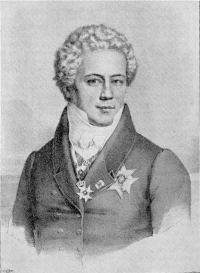 Gustaf af Wetterstedt Swedish Ambassador My French Friends. In these times of troubles, careful diplomacy is our bulwark against social decay. Our king, Gustav IV Adolf, who so recently got the throne after the cowardly assassination of Gustav III... He is rather worried about the situation in France... I am here to prove to his Majesty that its instead a opportunity for all. For you, for Sweden, for history. The Empire of Sweden is despite the efforts of our people, of our Parliament, of our Kings failing and decaying. Once the Lion of Europe, our empire is at risk of utter disintegration. The Russian bear looks west, and Prussia and rest of the Holy Roman Eagle looks north, with hungry eyes... But as is evident, with the recent audacious declaration of war against you, they all have their eyes set on you as well... In these times, we need to sit down together, as friends, to see what can be done about our common predators. viklud@hotmail.com Skype name: Huttersson
|
| # ? Nov 23, 2012 08:54 |
|
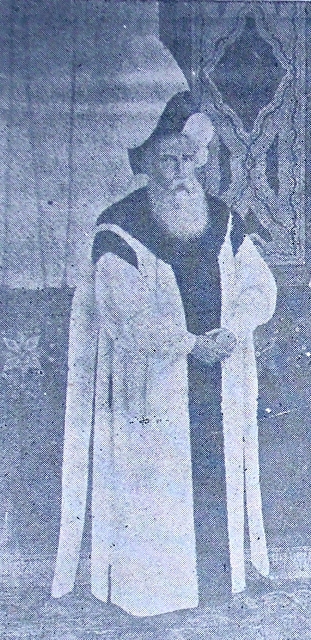 311x640 Koca Yusuf Pasha, Ambassador of the Ottoman Empire I greet the swedish ambassador and have been in contact with him, and we have agreed to put that whole thing many years ago with the rather...foolish actions of the swedish king many years ago. And have formed the "Rapidly getting unimportant nations and fuck russia club".
|
| # ? Nov 23, 2012 09:15 |
|
tatankatonk posted:
no lol
|
| # ? Nov 23, 2012 14:13 |
|
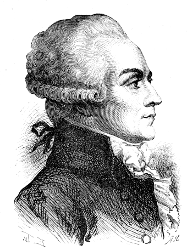 An address to the Army of the North posted:Soldiers of the Army of the North!
|
| # ? Nov 23, 2012 17:48 |
|
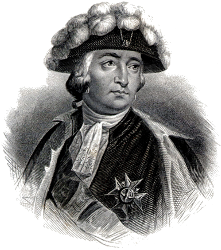 President of the First French Republic Louis Philippe Joseph d'Orléans, “Citoye Egalité” Men of the Army Du Nord, I beseech you to not follow the orders of the Breton-allied Generals commanding your forces. They will give your weapons and materiel to the Bretons and surrender to the Holy Roman Empire's forces so that the wretched Leopold's forces may rape and murder your wives and children! The Bretons, Rochambeau, and Leopold are all in league to destroy the Republic, destroy France, and turn her citizens into slaves of the despised Louis Capet. Any officer who orders the surrender of soldiers, weapons, or materiel to the Bretons or to the Holy Roman Empire is hereby declared an enemy of the Republic and is to be immediately arrested and turned over to the Ministry of Justice. There is a reward of 5,000 livres for every one of these traitorous officers. They have betrayed you, brave soldiers! They have betrayed the Republic you have fought so hard to protect! They have betrayed France! They have brokered deals with our sworn enemies for their own gain. They will gladly sell out France for even just a taste of power! Bring them to justice! General Rochambeau is given one chance to surrender command of his forces to the Republic and he may leave unmolested. Should he not surrender, the reward on his capture is hereby doubled and any man or unit who brings him to the Ministry of Justice shall receive the new Medal of the Republic. I understand that there may be an investigation into the attempt on the life of the General. But he is a sworn enemy of France who has ordered his forces to attack other Frenchmen! He has wrought bloodshed in the fields around Paris while the true enemies of our nation seek to invade us! He is a tool of the Monarchs, and cares only for the orders of his masters and not our nation! Let us band together and fight the true enemies of France and not each other!
|
| # ? Nov 23, 2012 19:27 |
|
 Turn is due in two hours. Get them in! Turn is due in two hours. Get them in! 
|
| # ? Nov 23, 2012 20:56 |
|
A RICH WHITE MAN posted:no lol 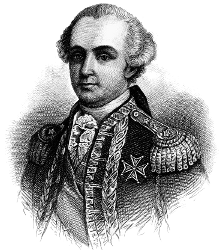 now ur fuckin in it m8
|
| # ? Nov 23, 2012 21:01 |
|
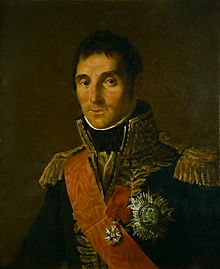 Général André Masséna, Commandant de l'Armée du Nord In a letter to Prime Minister Robespierre and President d'Orléans: Gracious sirs, I beg clemency for the Comte de Rochambeau. While it is true that he has led his army against the republic, he has done so only out of a misguided yet honourable belief in the legitimacy of the former king. The comte is still a hero of France, and I still retain hope that he will see reason and join me in defending our borders from the forthcoming Austrian invasion, as his men no doubt wish. Your humble servant, Général André Masséna.
|
| # ? Nov 23, 2012 21:34 |
|
 Général Lafayette, Minister of War, Commander of the National Guard If the Comte de Rochambeau were to immediately surrender his command I would support clemency. However if he continues to resist the legitimate French government and endanger his country during a time of war there will be no mercy.
|
| # ? Nov 23, 2012 21:38 |
|
 President of the First French Republic Louis Philippe Joseph d'Orléans, “Citoye Egalité” I hereby nominate my son, Louis Philippe de Bourbon, "Citoyen Unité" as the Minister of Finance.
|
| # ? Nov 23, 2012 21:45 |
|
 Louis Philippe de Bourbon, "Citoyen Unité" A Short Summary Of The New Constitution of France posted:Voting Rights Private Journal of Citoyen Unité posted:This is, by far, the worst constitution I have ever read.
|
| # ? Nov 23, 2012 22:11 |
|
a bad enough dude posted:
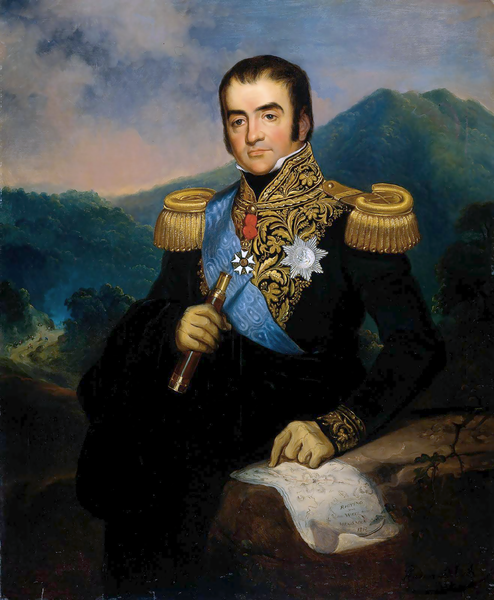 I put my full support behind Lafayette's demand's, they are reasonable and it is of the up most importance that all true supporters of Republicanism stand united against the Austro-Prussian Alliance that seems so intent crushing sort of Democratically aligned government.
|
| # ? Nov 23, 2012 22:16 |
|
 Should France find its new constitution to be unfeasible for some reason, I would be happy to lend my expertise to aid in the writing of a new one.
|
| # ? Nov 23, 2012 22:19 |
|
 Olympe de Gouges, patriot Excerpt of address to the Revolutionary Guard, outside the Legislative Assembly posted:Children of the Revolution! Brothers and sisters! Today we stand as one. I thank the good Father Roux for his trust in me to lead the Guard during this important stage of our struggle. On this important day I must remind you that we are together despite having different interests, but the cause that binds us together is the cause of France. I say to you, today there is neither Jew nor People's Catholic, neither anti-slaver nor libertine, collectivist nor feminist, but one cause for all. Today, our cause only has one ally, that of justice, and one enemy, and that are those who seek to undermine our country. So join me, my brothers! Join me! I am no Saint Jeanne, nor was meant to be, but am an attendant to the people, one that will do.
|
| # ? Nov 24, 2012 00:49 |
|
Tao Jones posted:
 The people of France thank you for your generous offer, however, Frenchmen have already gathered all that is needed for such a task, except for the ink. I trust you might supply us with the blood of the traitorous Marie Antoinette, Queen of Hunger, for this purpose? If you are not able to meet this requirement in due time, worry not, for we also can (and will) accept your own as substitute.
|
| # ? Nov 24, 2012 02:07 |
|
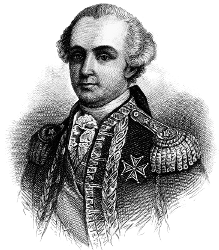 People of France, these are troubled times, and we might feel uncomfortable with each other's political leanings, but we can still unite around one thing that we agree on, and that is that the enrages are creepy as fuck.
|
| # ? Nov 24, 2012 03:00 |
|
turn hint
|
| # ? Nov 24, 2012 05:37 |
|
If anyone's freaking out, turn is going up tomorrow morning. It's going to be a long one.
|
| # ? Nov 24, 2012 06:06 |
|
Cumfart Vortex posted:If anyone's freaking out, turn is going up tomorrow morning. It's going to be a long one.
|
| # ? Nov 24, 2012 06:07 |
|
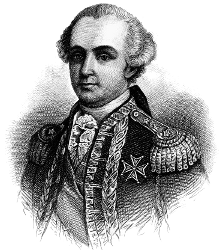 Official turn preview is up:
|
| # ? Nov 24, 2012 07:45 |
|
tatankatonk posted:
Are we really going to fight over who this while austria, and prussia are waging war on us? Answer: Yes.
|
| # ? Nov 24, 2012 08:33 |
|
 Turn teaser:
|
| # ? Nov 24, 2012 08:43 |
|
 The leaked uncensored turn preview:
|
| # ? Nov 24, 2012 09:09 |
|
Original Turn Official Preview Staight from Cvortex Heself: https://www.youtube.com/watch?v=0ewrbLsYSTk
|
| # ? Nov 24, 2012 09:31 |
|
News for Autumn 1792 - Turn 5 News from Robespierre’s Desk - Lafayette’s proposed budget is yet again signed into law. All payments to the clergy dry up, and even many who had supported the Civil Constitution are beginning to agitate against the government. - The increase in police funding looks likely to allow an increase in tax efficiency if it remains at that level through to winter. - The vast increase in the military budget permits the plans for levee en masse to become a reality. It will take about four turns to complete, but the first 75000 men have already been mustered! They are mostly untrained, but they are extraordinarily zealous. - The Land Reform Act is implemented by Robespierre, which wins him widespread support among the Enrages, as it essentially accomplishes one of the main goals of their platform - though there are the usual detractors who assert it does not go far enough. Peasants would begin working the land of the former emigres throughout France, but the exorbitantly high land taxes prevent them from actually doing so. - A Colonization Society is formed, sending peasants and even urban workers to the newly seized land in Louisiana. The influx of French speakers ensures that the loyalty of the region will be to France! - The Exchange of Learned Men Act sends some talented Frenchmen - but not militarymen - to the Ottoman Empire. The Ottomans do the same. Most of the French view the assignment as a neat little trick by the bourgeoisie, a clever and “patriotic” way to get themselves out of the country. - The Army Reform Acts also pass, to be implemented by General Lafayette. DOMESTIC NEWS: - In the slums of the Cour des Miracles, a new leader is emerging among the people. A leader unknown in name. What is known, however, is that their new fortress - Arcadia - towers over the poor districts of Paris like a beggar king’s citadel. Guards, both men and women, patrol it with regularity. - A war has broken out in the catacombs of Paris. Two of the forces jockeying for countrol in the underworld have joined together against the third, and in a series of coordinated strikes, push the war hard... occasionally, the fighting spills over into the sewers or even further, onto the streets of Paris! The bodies of men draped in thick black robes, lower class women with knives and staves, and even men in old Swiss Guard’s uniforms - overlaid with strange occult symbology - begin washing up on the banks of the Seine. Many look to the National Guard to restore order and stop this war of shadows. - Prussian attempts at convincing the monarchists that they are “on their side” only seem to exacerbate the situation. In particular, one guarantee made by the Duke of Brunswick - later called the Brunswick Declaration - that the Coalition forces would exact untold revenge on France should any harm befall the rightful king inflames the people in Paris and unites them behind the otherwise shaky government. It has the opposite effect in Brittany, however, and many eagerly await the arrival of the German forces to save their young country. - The remnants of the Dutch Patriotten, largely exiled from their native lands by the reactionary stradtholder William V, Prince of Orange, unite around the figure of Herman Willem Daendels the same second the portly figure of the Duke of Brunswick is spotted across the Rhine. That same man had been the one to disperse them and exile them into France years ago, and many Patriotten now seek to join the Republic for both revenge and the liberation of the United Provinces. - The Patriotten soon flock to the banner of André Masséna near Lille after Daendels leads them to him, the fairly well-trained recruits forming the new core of his army. - Lafayette undertakes a light restructuring of the military to accommodate the new recruits brought in by levee en masse. Several new army commands are organized, building on the old Luckner organization and simplifying some parts of it. The culmative reforms become known as the Luckner-Lafayette reforms, and will serve as the basis of the French military for some time. - A camp is established in northern Brittany, the incursion going unmet by Breton forces. Many border guards are surprised as to how they managed to establish it at all; no significant French forces were seen crossing the border with Maine. - The Flotte de l'Atlantique is ordered to break the blockade to support the camp, and instead commence a heavy bombardment along the northern coast of Brittany. Though the sailors themselves are reluctant, the officer corps is thoroughly middle class thanks to the general expulsion of the aristocracy, and it commences without much issue in the ranks. This causes devastation, as most of the targets are civilian in nature, but thoroughly unites the Bretons - those people who had once been divided between support of a united France and an independent Brittany. If the Republic would bomb their homes and their people, then they have no choice but to support the Marquis and his government. The British see this movement in the Channel as an immediate threat, and agitation for action in the House of Commons grows stronger... - All trade with the French colonies and America dries up as the British begin a massive blockade of the French mainland, though they have yet to move against the French ports in the Mediterranean. The economy, which had looked to be in a recovery, takes a nosedive, and the textile industry destabilizes. The French must secure sources of trade by land - which will mean beating back the reactionaries and freeing their people. - Letters from the British arrive in cities scattered throughout the French coast. The terms are simple: declare for King Louis XVI and the British will immediately lift the blockade and send them aid in fighting the “cruel dictatorship”. Most city-dwellers readily support the Republic and it has little effect, though the letter has reached the desk of a certain governor in Toulon, one who is growing increasingly tired of the heavy taxation imposed by the government - even if his city isn’t being blockaded. For the time being, though, he remains seated. - The British lessen their support of the Haitian rebels in what some see as a sign that they are planning to invade the island for themselves, though some still flows in due to either miscommunication or purposeful leaking. They divert most of it to aid the Bretons and Louis Stanislas, sending a horde of money the latter’s way. - The Archbishop’s letters to clergy in France soon reach the desk of Robespierre and the government. They call on all clerics to renounce their allegiance to the French Republic and instead rise up and aid the Germans in their struggle to liberate France. Despite a general lack of response among the clergy, the streets of Paris erupt in panic, with the crowds abducting priests from their homes and sending them off to the guillotine... where they are stopped by Lafayette’s National Guard. The guard allow a few through (bishops, mostly), who are executed to sate the crowd’s bloodlust, but turns the bulk away. Instead, it only inflames it. A traitor is a traitor, whatever color mitre he wears! - Cadoudal’s speech to the Army of the North, which soon arrives in Brittany, manages to win over many of its soldiers. The bulk of the corps solidify behind Rochambeau, and a growing minority are willing to fight for the king should it come down to that. - Charles Hector marches Les Femmes du Garde out of Paris and to Toulon, where he showers the locals with gold. The bald-faced bribery is ignored out of necessity, the people need money. He claims the money is from the Society of the Friends of Truth and the Daughters of Justice, increasing the groups’ popularity. He tells the people that if they support a moderate Republic, France will be as rich as this always. Many flock to his banner, and he marches them straight south. - On the same day, Charles Hector denounces Babeuf as a liar and traitor, interested only in self gain. The event proves to further undermine the popularity of Babeufism among the middle class but only intensifies peasant scorn for the French government. - Aquitaine becomes a further polarized region, with many of the people’s loyalties being called into question. Pamphlets from Georges Cadoudal reach them, and some sympathetic ears hear his call and outright refuse to answer Lafayette’s mobilization orders. This hinders troop recruitment this Autumn. - Babeuf’s support is massively undercut among his own men when Robespierre publicly leaks details of the Enrages’ plan to ransom the King and collect a large ransom for his own personal gain - all while enabling the restoration of Louis XVI to his “rightful” throne. Many of his men seem ready to outright abandon him, and the stage is set for betrayal. BATTLES: Battle of Sant-Maloù  - The Channel Fleet leaves its harbor at Falmouth when word of the naval bombardment reaches its admiral, Richard Howe - a veteran of the American Revolution. Old and tired, most expect his tactical efforts to be rehashes of past battles and victories. They expect wrong. - The bombardment goes on late into the night - in particular, 15 of the French ships of the line and 5 of their frigates are focusing their efforts on the small port town of Sant-Maloù, where many goods flow in from the British Isles in support of the war effort. The goal is clearly to push the rebel Bretons into submission and win back control of the port. - The arrival of the British fleet, the red naval ensign flying high upon their masts, causes a mass panic among the French sailors. After quick orders by what remains of the naval officer corps, they slowly and hesitantly form into the traditional long line-of-action, with the frigates heading out into the wings accompanied by corvettes in an attempt to outflank the slower, less-maneuverable British vessels. - The geography can only hurt them. To bombard the Breton coast with any real efficiency, it required the French to move their forces between inlets and protrusions, preventing open water maneuvers. What seemed a necessity at the time has become a deathknell. The British can now trap them in a hell of their own making. The British vessels overwhelm the French fleet - for each single shot the French can fire the British launch ten. - The white flag has soon replaced the tricolor on the French mast. All of the French frigates have managed to escape, but four of their ships of the line have been captured, and another sunk. One of the British vessels was sunk as well, a ship of the line hit by one too many cannonballs. - The rest of the Flotte de l’Atlantique, not at Sant-Maloù, and most survivors quickly retreat to port as the rest of the British navy begins a blockade of the entire French coast (excepting the Mediterranean). The first battle of the war is over, and the blockade has begun. Battle of Signes: 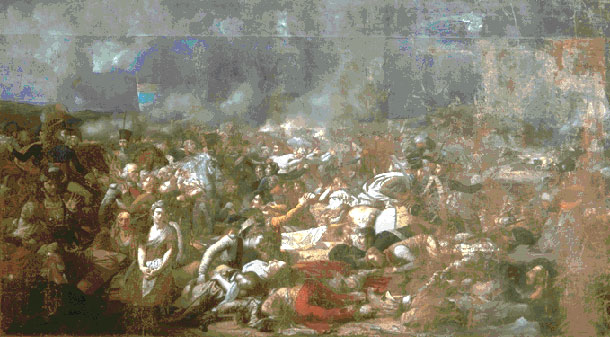 - After only narrowly avoiding the battle between the royalists and the National Guard, Babeuf’s many protesters outside of Paris regroup hurriedly in a seized townhouse within Etampes. Enrages from the south arrive not long after, with the King forced onto the ground before them, chains and shackles binding him before the common people. His mouth waters, his lips bruised a dark purple - his captors have not treated him kindly. He tries to speak, to give a speech that might persuade them one way or the other. He manages to finish his opening lines before one of his “hosts” smacks him across the face, silencing him. - Babeuf’s federes split after Robespierre’s diatribe against him. Some two-thousand of them ride on with the man further south, to meet with the Revolutionary Guard and seize a literal king’s ransom from the reactionary scum, while the rest remain behind to liberate homesteads and seize more abandoned emigre land. - A diplomat from the North arrives at the scheduled meeting place in a bar near Signes. As he arrives in town, he notes the deathly quiet from every corner of town. The inhabitants are nowhere to be seen, and the chill in the air sends shivers up his spine. He sets down a bag filled with 200,000 livres and waits. A long and tense hour passes. - The silence is broken by loud jeering to the north. The diplomat rises from his place and opens the door. Enrages have surrounded the town, laughing and shouting crude jeers at one another. As one, they begin to ride into Signes. Then the pillaging begins. - The steady march forward is interrupted by a small force - mostly women - led by d’Estaing. They charge through the peasants like butter, clearly intent on capturing the King first. The Enrages roar and scream as they reorient themselves and begin to fire on the new arrivals. Many don’t even have muskets, and those without are forced to jab frantically, with spears and knives, at the attacking forces. - The one-sided slaughter is ended when Hébert and his agents rise up from the earth like grass, breaking off from d’Estaing’s forces and attacking them from within their own ranks. It is self-evident he was informed of this attack ahead of time, but for now none but the dead care. Unimaginable carnage surrounds them. The battle is no longer about winning, it is about surviving. The trees surrounding the town are now alight, their leaves flutter downward onto the fighters leaving burns everywhere. - d’Estaing’s horse is cut from beneath him and falls heavy to the ground below. Unable to move, d’Estaing is forced to watch as a peasant raises his pitchfork high above his head. It looks like it will all be over when the man freezes, the smile disappearing from his face, to be replaced by a knife jammed into his throat. He falls to the ground, revealing Madame de Gouges behind him. She looks like a latter day Joan of Arc, wearing armor and carrying a tattered French flag. As she leaps over the fallen admiral, her battle cry makes one thing clear: Babeuf has been betrayed! Although their numbers have been severely reduced, thanks to propaganda from Robespierre and a general unwillingness to fight, the soldiers ride forward, and Enrages are soon fighting Enrages. - The diplomat coughs and sputters as he attempts to drag himself away from the fighting. Still carrying the bag of money, he is ambushed by a group of Babeufist federes. He doesn’t stand a chance. Xavier’s brave representative is ripped to shreds and the bag is stolen. As they begin to ride away, yet another force enters the fray - this one hidden. Though ridiculously outnumbered, these guerillas emerge from the shadows and strike without warning, as the battle rages all around them, before quickly retreating back to the darkness. Explosions are set off throughout the village as each building becomes its own battleground, and the once quiet village morphs into a hellscape. A set of Babeufists grab the bags filled with livres and manage to escape. They ride northward towards Picardy to tell the collectives of the ongoing fighting... and hopefully hand the money over to Father Roux. - In the midst of the fighting, the lock to the King’s cell is broken and he is dragged away by a group of men who splintered off from the Revolutionary Guard. The king can hear them murmuring the words “Saint-Just” and “Revolution” as they seize him. The militia bring him to an abandoned stone shack, a structure that will hopefully remain out of reach from the growing flames. Over the roar of battle, the soldiers argue about what to do about the King. Once again, the King tries to sway his captors. This time he is less effective. They are tired. They are tired of being hungry, of the King’s fucking rhetoric, of all the empty promises they have been forced to listen to. Without hesitation, the group’s leader unsheathes his sword and brings it down on the King’s ear. Louis screams as pain spreads throughout his body, biting his own tongue and flailing. - By the time the king escapes, chaos has broken out in the ranks of the enrages. No one can tell friend from foe, and when Babeuf realizes the king has escaped his custody, he tries to call an immediate retreat. His new secretary, Charlotte Corday, smiles and rises, letting her hand rest on his shoulder and holding his things in one hand. Then she removes a knife from her purse and slits his throat. Babeuf falls to the ground, blood spurting from his neck, and he falls to the ground dead. Corday, the woman who would later be widely known as either the “Liberator of France” or the “Murderer of Liberty”, drags his body into the center of the village, slumping him against the well as the fire burns all around his rotting corpse. Upon seeing his death, the peasants who had flocked to his banner turn and run en masse. - Just as the men begin to consider making further adjustments to the King’s anatomy, the Ministry’s own La Garde Vigilante arrive - the king’s old protectors. They silently gut the King’s new captors without a word, garbed in dark black, but Louis has been severely injured in the day’s fighting and is unable to move. He is dragged onto horseback and ridden away from the conflict. - ”Il roule! Il roule!”, screams the Regent’s youngest agent, and the guerilla forces reveal their allegiance. As the Babeufists begin their mass route, the Regent’s men look out across the plains to see the King being hoisted up onto a horse by La Garde Vigilante. Xavier’s agents ride out toward the men and soon a chase is underway. France’s fate hangs in the balance. Through sheer determination, the Regent’s riders catch up to the King and steal him away from his newest set of captors, knocking one from his horse and leaving the rest in the dust. They ride hard north, hopefully to reunite him with his brother to receive medical attention. The trip is slow, due to the King’s condition and they are unable to make it into the Austrian Netherlands. - As the battle draws to an end, 958 federes, 223 working women, 313 Revolutionary Guards, and 230 of Hector’s followers number among the dead, along with an unknown number of agents from the Regent and Saint-Just. Bodies litter the ground throughout the town of Signes, and many civilians had been caught in the fighting, their homes destroyed, their fields sown with blood, their families murdered. It would take decades for the town to ever recover... but many argue the Enrages will emerge from the battle even stronger, Babeuf having been christened a martyr for their cause. - While his last words are disputed, his death’s impact is not. As word of Babeuf’s demise spreads northward, peasants in the old collectives take up arms for defense of their new property. They have been betrayed, not just by the King but by the Republicans who promised them a part in the Revolution. Babeufists will now consider themselves not part of a French Revolution, but a global one. Picady becomes de facto independent, with residents calling the region the Babeufist Farmer’s Revolutionary Collective, though later scholars would name it the Picard Collective. - In a small townhouse in Roye - the site of the local Enrages club - memoirs are unearthed from Babeuf’s personal possessions, and a mass campaign to distribute them in his memory is begun. Most prominent among them is the only partially completed Collectivist Manifesto, solidifying collectivism into one coherent ideology, one based on “people’s war” and “farmer’s collectives”. This would later be lauded as Babeuf’s magnum opus, and its principles would be used as a guide by Babeufists the world over. He will forever be remembered as Gracchus Babeuf, tribune of the people, the name he published the Manifesto under. - Articles decrying Lafayette, Robespierre, and Louis Philippe as France’s triumvirate and dictators in the making - the most biting using the Roman setting as an analogy to tyranny - begin spreading throughout the sans-culottes in the National Guard. Though most are confident in Lafayette as a leader, some are visibly shaken, and the loyalties of the non-bourgeois recruits grow more and more divided. Battle of Lille: 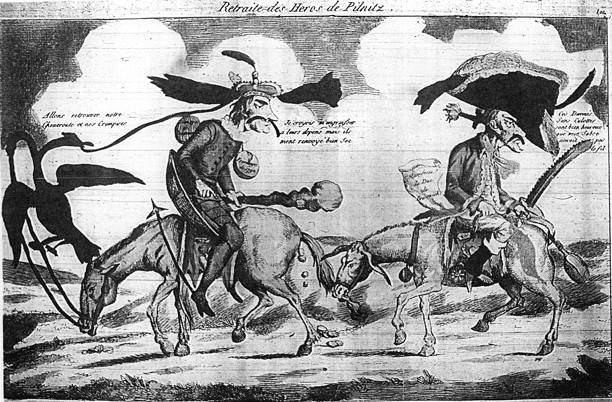 -Ignoring the pleas of the Holy Roman Emperor to wait until the oncoming Spring, Xavier gathers his Army of Princes and marches across the border. The first few moments are uneventful enough, but as the Regent approaches the city of Lille he notes large numbers of troops stationed, ready for attack. L’Armée des Princes charges. -The start of the battle is a slaughter, with Xavier’s highly trained troops making short work of Masséna’s preliminary troops. In the first wave, the Princes kill over 872 of Andre’s men, forcing them to fall back to their fortifications. Only 122 of the Regents own forces are killed, prompting premature celebration. Xavier orders his hussars into the backs of the retreating forces, killing 2463 more. - André Masséna rallies his forces with a determined charge, hacking away at every soldier he sees. sheer numerical superiority prevails and the Regent is forced to flee. He is followed by thousands upon thousands of his own men. 2614 of the princes’ men fall as they would before Lady Guillotine. Xavier orders a half hearted surge and takes 2500 peasants to their creator but the battle is over. The Army of Princes retreats back to the Austrian Netherlands. - André Masséna has achieved a nominal victory, repulsing the emigres, but with a significant toll on his own forces. Approximately 5949 French soldiers have died, nearly two thirds of Andre’s own forces. Xavier gives up 3578 of his own soldiers to the Lord. He is further forced to abandon any plans he had for France. ------------------------------------------------------------------------------------------------------------------------- - Orleanist leaders begin to disappear across Paris and with them, funding. After a few days, a ransom is left at their household and the terrified family pays. These attacks are only the latest in a series of assaults against government sympathizers. Orleanist popularity decreases. - In completely unrelated news, a mysterious force begins buying all excess guns across Paris. With starvation setting in, most citizens are willing to part with their weapons in return for money to pay for food. Many of these citizens are in the National Guard, and expect the increase in funding Lafayette’s budget promises them to pay for new government-issued weapons. -Le Père Duchesne begins publishing explicitly feminist articles with hopes of winning female support. Madame Gouge, the Women’s March on Versailles and the new play Jeanne d’Arc are all praised. Female readership in the magazine goes up. - Enrages across France are spotted collecting animal dung and urine. The very strange order appears to have been given by Father Roux. The public is severely confused by the event and it serves to inspire tabloids for the next few months. Enrages within the city also begin collecting ash from ovens in Paris, primarily supplied by their broad base of support among women. When asked, the group responds they are using the soap to make ash soap, for cleaning and charity work. Long hours are spent manufacturing something within Roux’s domain, to be sure, but “faulty ingredients” seem to delay the process... - On the fifth of November, to much fanfare and with cheering crowds celebrating the quick and (relatively) painless return of democracy, the Assembly is reopened by President Louis-Philippe and General Lafayette. The legislators resume their old seats, though most of the seats on the right are empty as a direct result of the June Massacres. Lafayette gives his address in full uniform, declaring an official end to both the reactionary monarchy and the excesses of revolution. The main thrust of his speech, though, is to announce punishment.  - The sewers beneath Paris are dank and wet, with rats scurrying through their twisted canals, but the ten men who set off through them grew up in far worse. It was, after all, why they supported the Enrages in the first place. But no time for dreams of childhood now. These simple barrels they held in their hands would help to change the course of history. - “... the traitor, Charles Hector, comte d'Estaing, for the crime of treason, is hereby sentenced to death.” He had leaked news of Lafayette’s sally to royalist forces, so went the government line, and so it goes with royalists. - The water is deeper now - this is the older part of the city, where the tunnels are larger, wider, less efficient. The shadows are deeper, too, longer. Did one of them just move? No. The men selected for this mission had been handpicked by Roux himself, separated from the rest of the Revolutionary Guard when it went south to help Babeuf. They were not men to fear easily, and even guided only by torchlight they knew they would reach their destination. - “... the traitor, Jacques Pierre Brissot, for the crime of emigration, is hereby sentenced to twenty years imprisonment.” Government sources suggest that even now, the man is seeking passage aboard a ship on the Atlantic with hundreds of his disillusioned followers. - The room below the Assembly is as wide as the building itself, with makeshift pipes connecting the toiletries upstairs to the filthy pools below. Every so often, some material decay would spill out onto this already decaying section of the underworld. The ten men quickly began mounting the barrels around the center, an order barked here and a command issued there, though in truth none of them were very suited to leadership. The matches they had brought with them are hard to light in the wet underbelly of Paris, and they strain to do so. - “... and the traitor, Jacques Roux, for the crime of treason, is hereby sentenced to death.” - Suddenly, women begin filing into the sewers, some armed with clubs and others knives. They identify themselves as members of the Revolutionary Guard and demand that the men within stop this madness at once. The ten men do not listen, barking at them to mind their place and help them, and so... the women attack. - The National Guard hastily arrives at the Assembly, ordering an immediate evacuation on an anonymous tip - though they secure the President and Lafayette personally first, taking them away while the legislators stampede over one another in terror.. Robespierre is nowhere to be seen. - The battle in the sewers is small, much smaller than most, but it rages nonetheless with ferocity. The women are bloodied, but more of the men are on the ground, their limbs crippled, their faces beaten savagely in. Ten men set out from Paris, but only four still stand. Then, finally, the match lights, and it flies without hesitation onto the barrels. - Boom. 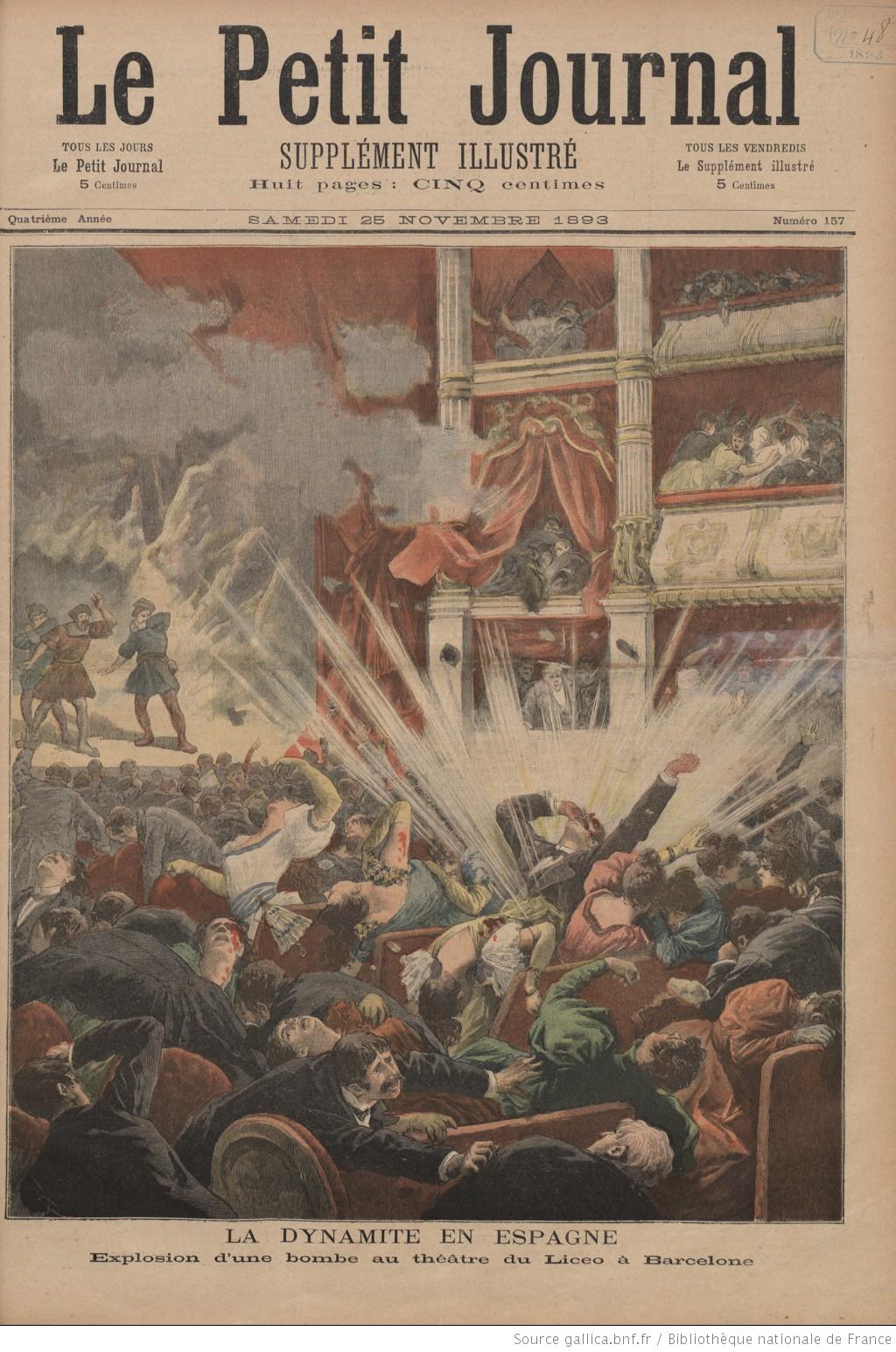 - The Assembly building lies in ruins, flames dancing vibrantly atop it. The whole of Paris crowds at its doorstep even as National Guardsmen order them away. The upper echelons of government had managed to escape - most of the ministers weren’t even in the Assembly - but a substantial number of legislators were wiped out in the attack, as was the most visible symbol of the new government’s power. Many in the country call for immediate elections to replace their old legislators, but the current situation is likely to suit the government just fine... the vast majority of the remaining delegates are Jacobins. - A citywide manhunt is launched, with Roux as the target. With the Revolutionary Guard out of the city, he has no independent arm to defend his property with. His shelters are shut down, orphans and widows thrown out onto the street, his new “priests” arrested, the entire infrastructure he had spent so long building in the city eradicated. But the rogue priest himself is missing, or dead, or both. No one is quite sure. Immediate condemnations are issued by the Ministry of Justice, claiming Roux and his Enrages are behind the destruction of the American embassy, the Jacobin club, and the Assembly. The entire political club is denounced and branded illegal, with the “Revolutionary Guard” being condemned likewise. Some question whether he has the authority to do this, but few do it openly. - After the fierce battle, Charles Hector assumes control of l’Armee des Alps only to find that his command was a sham. Michel Ney invites the old admiral in for a cup of tea, explaining the situation to him as amiably as he can. He is a traitor to the republic, the general explains, and for that he must die. Lafayette’s orders. But the guillotine is not the soldier’s way to die, and Ney knows that as well as any. He offers Hector the option of death by firing squad, and the admiral readily accepts. - But when the soldiers arrive at Hector’s quarters the following night, the admiral has made his escape! He has supporters in Toulon - having served almost half a year at the naval academy here - and he is now likely somewhere among them. Storming of the American Embassy: 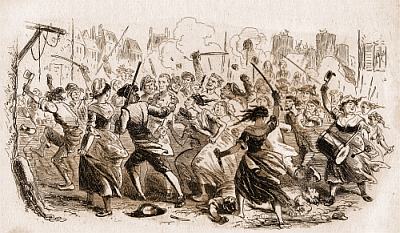 - Realizing their location has been compromised, William Short, Marie Antoinette, and the Spanish swordsman they hired to train the Queen prepare to depart to the United States. There is little that can be done for France, at least for now. William Short needs reinforcements. They struggle with how they might escape the compound unseen, but the sudden arrival of a small delegation from Olympe de Gouges nips that problem in the bud. - A number of plays are staged the next day outside the American embassy, de Gouges’ famous play Jeanne de Arc most prominent among them, which draws the immediate attention of the nearby peasantfolk who gather in huge crowds outside. Meanwhile, dressed as the Ottoman ambassador and his harem, the group departs early, through a secret exit in the south of the estate. Rumors are left in their wake on the extent of the relationship between the Queen and the Ambassador. This relationship will spawn a thousand saucy historical romance novels. - Hours after they depart, 500 National Guard members arrive to the embassy. Finding the structure empty, they curse their luck. LaFayette manages to calm the soldiers though, by claiming he will write to Thomas Jefferson himself, a man who will surely soon be elected President. LaFayette leaves a small force of National Guard soldiers to hold the embassy in case William Short chooses to return. - Four days following Short’s escape, sans-culottes and Babeufists are spotted on the horizon, with torches and pitchforks in hand. The National Guard braces itself as the mob arrives on the scene, demanding the immediate execution of Short and Antoinette. When the National Guard informs them they have departed, howls go up among the crowd. Peasants begin to climb the walls around the building, intent on occupying it. They are shot by the National Guard. This causes the group to disperse, although they vow they will return in a few months. They will make the estate an Embassy of the People and decorate it with the heads of the National Guard and the Queen. - Thanks to a number of unknown benefactors, Short and the Queen arrive at the port of Toulon, that same harbor that bore host to the great Womeneer’s Mutiny. Short hires a captain and purchases a ship, using American funds, and ushers the Queen onboard. The Queen and her swordsman celebrate the successful escape... until they realize William Short is not onboard. As the ship moves away from the port, Marie Antoinette rushes to the port railing and sees William Short. “Will!” she screams in the best English she can manage, “Will! I’ll come back for you. I’ll return! Wait for me!” She continues to sob after him long after her voice has gone and the shore has disappeared on the horizon. ------------------------------------------------------------------------------------------------------------------- - André Masséna delivers an ultimatum to the Comte de Rochambeau. While Andre considers him a hero of France, if Jean-Baptiste does not move his army to the border to fight off the British and Germans, Andre will consider him a deserter willing to feed France to foreign wolves. Several soldiers in the Comte’s army, unwilling to wait for a reply, defect to Andre. Jean-Baptiste must respond immediately or face mass defections and general disorganization! - As André Masséna’s forces recover from the wounds received at Lillie, he trains his troops. The men are exhausted from the fighting and whisper crude curses at their commander, but abide by his orders. Seeing these emerging divisions, André tries to evoke sympathy in his own situation to unite the forces. Rapport increases somewhat. - Saint-Just appears across Paris, praising the newly established Republic and pushing for land reform. He is applauded by Jacobins across Paris for his efforts. Jacobin popularity increases slightly. - The revolutionary later travels to the poor districts of Paris with hopes of gaining Jacobin supporters among the sans-collette. After the collapse of Father Roux and his organization, the group seems ripe for the picking. Before he can even speak, Saint-Just is booed off the street and pelted with feces. The people stand by their priest. - Denied his prize in the poorhouses, Saint-Just immediately begins to turn his attention toward increasing public approval of the National Guard and Army. Propaganda, in the form of pamphlets is released across the nation. The people who already attribute their safety to the National Guard need little prompting to applaud the organization further. - Upon hearing the Battle of Signes’ outcome, Xavier Stanislas makes a speech mourning the attacks against the King, comparing his health with that of a nation as a whole. The court in Netherlands cries out for Robespierre’s blood upon hearing the news and reaffirms Xavier’s regency until the King’s condition improves. - With the approval of the court, Xavier goes out and begins recruiting further soldiers for L’Armée des Princes. Many are motivated by the injuries sustained by the King to join, some five-thousand of them! Xavier begins purchasing horses with hopes of shifting focus to calvary. - Xavier reasserts old property rights as his army recovers in the Netherlands. The order is more symbolic than anything but the Regent swears that wherever his army marches, the nobles will be put back in their place. This results in a major decline in popularity for Xavier among the poor and petit bourgeois and a major increase for the nobility and bourgeois. - Claire Lacombe attempts to expand the operations of the Revolutionary Republic of Theatre from Paris to the rest of Metropolitan France. Her efforts are complicated, however, by overt obstructionism from government officials. With the outlawing of Enragism, government officials outright shun Claire and her organization. On several occasions, she is arrested and later released. The Revolutionary Republic of Theatre is forced to restrict their operations to the countryside, where the government has less control. - Education efforts by Claire Lacombe continue but are largely undermined by the collapse in Enragés funding. She continues onward, but severely restricted. The female intelligensia can only go so far and many are unwilling to risk Jacobin wrath. - She is able to establish a second acting troupe, however, using renewed interest in the arts. - King Louis XVI spends the next few months attempting to recover from his injuries in hiding. Although the pain is immense, he manages to write a handful of letters. The first recognizes his brother, Xavier, as the legitimate French Regent and apologizes for the inability of the crown to protect the legitimate rights of property of the nobility. With shaky hands, he seals the bloodied letter and sends it to one of his protectors, who spreads it across France. - Another letter is sent, this one to the Holy Roman Emperor himself. In it he pleads Germany be forgiving to the French people, particularly those in the countryside who have no control over their rulers in Paris. King Louis XVI begs the Emperor spare the innocents who are being conscripted by Lafayette and his wicked army. The letter arrives in Vienna but the Emperor remains silent. No one will know what policy the Germans will take until they have invaded. - A final letter, promising a generous reward in return for the Dauphin is penned. It proves further incentive for much of France, eager to win the generous rewards offered by both the Jacobins and Royalists. - In preparation for the German invasion, the Army of the Rhine continues to reform itself into a looser fighting force, with a focus on hit and run style tactics. This revolutionary new fighting style faces some opposition within the old intellectual armchair generals of the French military, who believe facing the army directly on the field is a sign of courage, but they are unwilling to voice their opposition in a time of crisis. - Alexis, seeing opposition within his own rank, transfers 10,000 of his worst soldiers to control of Andre Messana. The move has a double purpose, serving as a threat to his own soldiers and improving the management of his troops. - Using a grant from the President himself, Alexis-Vincent-Charles Berbiguier researches ways to defend France, both from the Bretons and Holy Roman Empire. Supplies from as far away as Corea are transported into the country and to Berbiguier’s study. After several weeks of intense work, Berbiguier emerges declaring success. The concoction is transported to the President’s home, much to the man’s distaste. Bourgeois note the horrific smell, peasants say they smell alcohol. Several Russian mercenaries serving in the Austrian army really like it! - After this, Berbiguier retreats back to his place at the University. He shoos out curious eyes, who note that Berbiguier is working with extremely explosive chemicals. He justifies his experiments as police work. He is trying to figure out what chemicals were used in the Paris Bombings. Still, people remain suspicious. - The French Army ready themselves to turn Von Bachmann over in return for the Dauphin. When they come to the Swiss Guard’s cage, however, they find it empty! An investigation is launched. The guards claim that individuals, claiming to be investigators from Paris, took Von Bachmann from his holding cell for interrogation on the whereabouts of the Dauphin. The guards were suspicious when one of the imposters fake mustaches fell off, but were too socially awkward to bring it up. Von Bachmann has escaped to parts unknown! - After the establishment of the Republic, the Orleanist Party experiences a sudden reaction and becomes a Conservative movement within France. The new party gets the approval of many bourgeoisie and nobility who see the Orleanists moving “in the right direction”. Few join, however, because of their revolutionary past. They choose to wait a few more months to ensure the party’s rebirth is legitimate and not some parlor trick. - In truth, however, there are two factions now emerging in the Orleanist party, seeking to adapt to the new changes in government that come with the declaration of Republic. One, the conservative, sees the Maison d’Orleans as the first family of the Republic and advocates a monarchy-de-facto as is the case in the Netherlands. It draws its support primarily from the old Orleanists and Feuillants - the ones who aren’t dead, in any case. The other, the liberal, is a standard liberal Republican organization, fairly moderate. It draws its support primarily from the remaining Girondins, most of whom have now abandoned the Jacobin party. - Citizen Louis Philippe orders his Rainbow Guard to arrest all Enrages, citing their very presence as a threat to the Republic. Hundreds of Paris’ poor are abducted from their homes and thrown into secret prisons, to await a non-existent trial. Orleanist popularity among the poor decreases sharply and the inroads that had been made by the organization collapse. Many turn to Babeufism just to spite the young former prince, with a large minority turning back to the Legitimist monarchy. Those not arrested are purposely expelled from the city by his father, the President - most of whom immediately head northwards, to the Picard Collective. The names given to the pair are surprisingly accurate, and rumors of a high-ranking, willing mole in the Enrages soon reach Father Roux. - Rochambeau and his forces leave Paris and march to the Breton border, where they set up camp. Rochambeau declares the Jacobin leaders of France as enemies of the state, as mere rebels. The French people must consider the Germans friends of France. After hearing the peace terms, Rochambeau’s soldiers are skeptical and some defect entirely to the National Guard. Still, the bulk remain with their leader, largely thanks to the efforts of Georges Cadoudal. Pamphlets from the Army are published to increase soldier morale.
|
| # ? Nov 24, 2012 20:58 |
|
HAITIAN NEWS: - Toussaint and his men stand on the rocky Haitian shore as he watches the French sail away. For a moment, there is a stunned silence. The slaves have won. France is defeated. The gentle breeze is the only noise for miles. Then, at once, an enormous cheer erupts from the men. It is surely time to celebrate! Toussaint silences his men. There is still work to be done. - Toussaint and the entirety of his army march from city to city, ensuring their surrender to his new government. Many white settlers have already abandoned the island entirely, leaving ghost towns across Saint-Dominique. More bitter plantation owners have burned their properties to the ground rather than allow their former slaves to take custody. All across the region, great change is taking place. Slaves take control of the land they once worked, signalling the beginning of a new era. - A letter is sent to the Spanish government. The newly freed Haitians have no desire to attack Spain, but will not stand by idly if the battle comes to them. They will defend their livelihood across the ENTIRE island. Spain, who is struggling to maintain its own colonial empire and does not wish to fight France and Haiti simultaneously withdraws, hoping to forget the conflict.  - Meanwhile, the French tricolour is replaced with a new flag. The flag of the people. Using blue for freedom and red for the blood of revolution, the Haitian people symbolize new freedom. Preachers are sent across the New World, to bring inspire hope in slave populations and encourage them to rise up. BRETON NEWS: - A formal defensive alliance is signed between the Kingdom of Brittany and the Kingdom of Great Britain. Britain likewise agrees that it will make no attempt to annex the new nation. This assuages the fear of many peasants that they are merely trading one tyrannical government for another. - With the British fleet having secured them passage, five-thousand British troops, under the command of Sir John Abercromby, land in Nantes to reinforce the Breton garrison there. They are poorly trained and equipped, but any reinforcements are welcomed by the Noble Assembly and the Marquis. - The Archbishop of Paris accepts his appointment as nominal head of the Catholic Church in Brittany, though some are resentful that the native bishops were passed over for the Frenchman. Still, his efforts to integrate himself in the country are mostly successful. He presides over mass in the native Breton - despite canon regulations to the contrary. - With the sun rising behind them, Marie Thérèse and Armand Tuffin appear on the balcony outside the Naoned Capital Building. With the nobility gathered below, Tuffin announces Marie has agreed to fully adopt the Breton culture as her own. The newly named Steward to the Duke speaks in volumes on how the girl is vital for foreign and domestic stability. The princess herself is silent through most of the speech but does not oppose Tuffin. This confirms what has been suspected for a long time, the princess is the next in line to the throne. - Allegations that President Louis Philippe is the devil himself continue to rise from Nantes. They have become so common that cartoonists have taken to portraying the slow transformation of the just and noble Citizen-King into a figure resembling Satan. - Louis Stanislas uses his money to send humanitarian aid to Brittany. Although some of it is intercepted en route and never even make it to the border, a large portion arrives. Inside are small notes from the Regent himself, requesting the loyalty of Brittany and for them to remember who is second in line to the throne. While Marie is surely a lovely girl, Xavier argues the new nation needs an experienced leader. A large portion of nobility switch their votes to Xavier, and while Marie still commands a majority, the new “Patrilinealists” - who advocate strict agnatic primogeniture - represent the first major division in the young nation. - Over the next few days, Tuffin and Marie Thérèse ride to towns across Brittany to drum up popular support for Dukedom. Most Bretons accept the girl without question, applauding the two as they ride into town. Gossip spreads when newly appointed Marshal Aimé Picquet du Boisguy accompanies the young girl and Tuffin for a few days in the countryside. Although it would be far below her station, it is undeniable that Boisguy is attempting to court the princess. - Great Britain and the Papal State open official embassies in downtown Rennes, to much celebration from the nobility. It is largely a symbolic move but a powerful one. - The Noble Assembly approves a major revamp of the Breton government. The Cabinet is expanded to include a Chancellor, Marshal, Spymaster and Chaplain. Officials, approved by Tuffin, are appointed to the newly vacated spots. Efficiency increases slightly. - The Breton government introduces the Bleun-Brug, a police and state intelligence gathering mechanism under the jurisdiction of the Government Chaplain. It is intended to protect the people, but locals see it as a thinly veiled Breton Inquisition. Relations with the Papal State increase. COLONIAL NEWS: - The East India Company draws its forces away from Mysore - where the war has finally begun to go in favor of the British - and begins a siege of Pondicherry. The Marathas to the north believe now may be the time to strike. - British forces land in Martinique, seizing the colony away from the French. -Upon hearing of Robespierre’s betrayal of him, Brissot decides to abandon France. The nation is doomed, a rotting carcass too burdened by its history to experience revolutionary change. The only place where the Revolution can thrive is in the New World. Brissot makes one final appearance, just outside Paris, inviting true French Republicans to follow him to the New Orleans before disappearing. Attempts by Lafayette to arrest him before he can escape are a failure. He is spotted in the Port of New Orleans several months later, ready to start a new nation, a new republic. - A massive influx of immigrants start to arrive in Louisiana. Royalists, Republicans, Babeufists, Haitian exiles, they all see New Orleans as an opportunity to start fresh and escape the chaos of the homeland. De Sade’s initiatives and city planning are able to lessen the impact of some of this mass immigration, but the colonial government can barely keep up. Some particularly adventurous individuals decide to move further north, toward Indian territory. - They are followed by thousands of soldiers from Saint-Dominique. Realizing their struggle’s futility, French soldiers have moved en masse to New Orleans, abandoning Hispaniola to the freed slaves. The people of Haiti are experiencing freedom for the first time in a long while. - Using his remaining funds and some anonymous donations from France, Governor De Sade is able to establish a mass schooling system, the first of its kind in the West. People of all trades and backgrounds are able to learn basic skills. De Sade’s popularity in New Orleans explodes. - In celebration of their beloved leader, the people of New Orleans establish a new holiday known as SADI GRAS. Drinking and debauchery are seen across Louisiana through the night and into the early morning. De Sade himself encourages these celebrations, by paying all prostitutes to offer their services for free for the evening. Thus, a tradition is born. Napoleon’s troops take the opportunity to relax for the first time in a long while. - De Sade transfers La Garde Libre from his control, to the newly arrived Napoleon. Faced with an incredibly undisciplined fighting force, Napoleon initiates immediate army reforms. He teaches the men how to maintain formation and forms a line of command, both novel concepts to the heavily disorganized body. The group is not transformed overnight, but the foundations are put in place for further improvement. - Two days after Sadi Gras, to cope with hangovers, Napoleon marches his forces into Northern Louisiana to drive out the Spanish settlers. He finds most of the Spanish garrisons already deserted, having apparently left when France retook the colony. He gives the land to white French settlers. 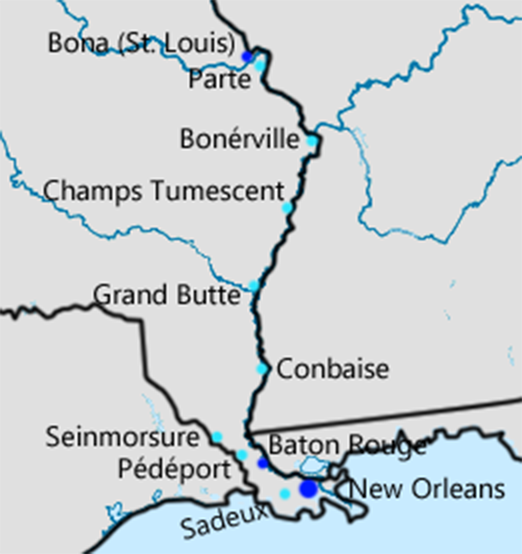 - In addition to driving out the Spanish, Napoleon maps out a number of new French settlements up north. Using De Sade’s specifications, Napoleon christens dozens of new settlements, which consist of at least 500 Frenchmen each. Several towns come under immediate attack by Indians and mysterious raiders. The city of Bonerville is burned to the ground and its inhabitants scattered across the plains! FOREIGN NEWS: - Several French Ambassadors are sent to the Papal State to improve relations, carrying with them plenty of money, but they are denied entry. They are forced to port in Tuscany. The Pope considers the French government excommunicated until stability is returned, through the form of the monarchy. He stresses the Catholic Church does not deny Republicanism, but the illegitimate form that has been put in place in Paris. - At the instigation of Ambassador Gower, the British Parliament authorizes war against France, and the declaration is issued on October 3rd! Their terms for the surrender of the so-called Republic are as follows: 1) restoration of the legitimate constitutional monarchy, although a debate on the future of France's political system is allowed once this condition is met, 2) immediate cessation of hostilities against the Duchy of Brittany, 3) Phillippe d'Orléans and Maximilien de Robespierre are to renounce all political activity now and forever. These terms are seen as much more amenable than those offered by the Germans, but no one in France would dream of negotiating with any enemy of the Republic, whether they call their monarch ‘constitutional’ or no! - The Svenska Västindiska Kompaniet is founded by royal charter, despite reservations after the failure of similar ventures. The main avenues of trade are with French Louisiana, with many of de Sade’s less “acceptable” goods and contraband flowing freely through the Swedish port at Gustavia. Attempts to buy Haitian sugar go unheeded - Toussaint will need to either agree to sell it to the Swedes or continue diverting it to the British. The island of St. Bartholomew sees an upswing in productivity, and the Swedish government is so far appreciative of the increased revenue. - Swedish ships are soon seen in the harbor of Constantinople, with cannons and weaponry being hastily unloaded. This is seen by the Austrians as an insult, given that a state of war now exists between the two countries, and they demand an apology from the Swedish government. - Sweden transfers two cannons to de Sade’s new Louisiana colony from their garrison at St. Bartholomew. The cannons are appreciated, but many on the island worry that they are compromising their defense for the aid of a potential enemy. - The Swedish government outright refuses the request of the ambassador for shipment of weaponry to Haiti. He can not supply every country in the world with Sweden’s military resources, the Ståndsriksdagen argues, and they must see to their own defense first. They point to Russian designs on Finland. - Fear spreads across the United States of America as word of a British invasion reaches New York. They have been distributing arms to the Indians and encouraging slaves to revolt - or so go the rumors. Filtered into dissectable bites by the Franco-American Friendship societies, many in the South now fear the possibility of a Slave-King or an Indian-Lord ruling over them, each one crowned by the British. - At the behest of the Ottoman ambassador, the Sultan begins to import Western military officers with hopes of reforming the military. Sultan Selim III celebrates the arrival of these officials as a new beginning for the Ottoman Empire and a chance to stop the Empire’s decline. The Janissaries grumble about foreigners hijacking the military though and begin to question their ruler’s legitimacy. - Rumors swirl about a proposal by the Ottoman Empire to purchase Tejas from de Sade, only to be denied by the Sultan. It is quickly disregarded as too ridiculous. - As the Holy Roman Empire marches their forces toward the French border, Ottoman troops are suddenly mobilized and cross into Austrian territory! A declaration of war comes hours later, leaving world leaders stunned at the surprising boldness of the “Sick Man of Europe”. Historians themselves will later point to a particularly inspiring letter from the Ottoman ambassador to France as the cause of intervention. The Emperor swears vengeance and shifts several armies back toward Ottoman Europe. It is rumored that the Emperor plans to dissolve the Turkish Empire, and calls Russia to help him against the traitorous Turks. The Russians divert several thousand men to Yedisan to send a warning to the Ottomans. - A plea from the Ottoman ambassador to France for more humanitarian aid is ignored, with all available funds being put toward the Empire’s own war effort. If they are to succeed after their last defeat, Selim needs all the help he can get. - The Kingdom of Portugal and the Dutch Republic follow their ally in their declaration of war three days later, with Dutch troops in particular mobilizing frantically to defend their border. A state of war now exists between most of Europe and the French Republic, and what would later be called the War of the First Coalition has finally begun. - The Kingdom of Spain, believing itself in a position to negotiate, immediately demands the withdrawal of de Sade and Napoleon from Louisiana, along with a hundred credits in reparations, or it will join the rest of Europe in war against the Republic. The Bourbons there look with particular greed at French Roussillon. - Despite plans by the Prussian ambassador for an invasion of Brittany by sea, they do not materialize. The command staff, largely trained in the school of Frederick II (“the Great”), believe that the very idea of a Prussian navy is absurd, and even if they did not, the Kingdom completely lacks the resources to mount a naval incursion of that magnitude. https://www.youtube.com/watch?v=6y-iji-IAH0 - The Prussian army instead hoists the dual banners of Konig and Vaterland and, with what forces they’ve mobilized thus far, begin a march straight to the Rhine after word reaches them of an incursion by Louis Stanislas south, into French Flanders. The regent has forced their hand! To get there, they must pass through Hannover, though this obstacle is quickly overcome. The British king grants them his consent and right of passage through his territory. - In late November, the Prussian forces reach the Upper Rhine and set up camp there, fearing a winter war. They are led by the Duke of Brunswick, an aged and very reserved commander, and he has beneath him some forty-thousand men. The Prussian military still uses the antiquated tactics of Frederick the Great, and only time will tell how well the old ways will fare against the modernized Luckner-Lafayette era French military. - Marie Antoinette and her swordsman instructor arrive safely in Virginia to much fanfare. Newspapers across the nation write on Short and Antoinette’s daring struggle to the New World. Even Jefferson himself cannot help but be somewhat astonished. The Queen’s presence is requested at a special hearing in Congress, where she speaks on the situation in France. She also tours around Franco-American clubs drumming up popular support for her husband. She takes up residence at Short’s estate but it is unknown for how long. Strange visitors are invited to the estate almost daily and Marie herself is spotted pouring over French maps, in search for something. -William Short writes to the Boston Gazette, announcing his official endorsement of Hamilton as President. Jefferson’s supporters loudly condemn such blatant factionalism, but it does little to affect the state governments, who choose the President. - Anonymous editorials appear in American newspapers, attempting to drum up popular support for Brittany. Armand Tuffin is built up into an almost mythical paragon of virtue, defending his people from the unwashed masses of Paris. Comparisons with George Washington are made. - The Presidential Election of 1792, also known as the beginning of the Silent Revolution, sends ripple effects across the globe. After failing to achieve a majority in the college, the Presidential Election is thrown to the Congress, where it exposes a major flaw in the election system, namely an inability to distinguish between the Vice Presidential and Presidential candidates. Nonetheless, thanks to what some are calling the “corrupt bargain”, Hamilton is elected president, with Burr his vice-president. It is sure to be an “interesting” government. William Short is appointed Secretary of State as thanks for betraying his mentor, recalling the ambassador to New York... if he can escape France, that is. - As America copes with the results of its elections, raids from Native tribes into US territory increase dramatically. Numerous settlers are killed in their beds, sparking outrage in the states. Captured Indians claim they have been contacted by the British, who have promised them a return of their lands. The incident worsens British-American relations and prevents the ratification of the Short Treaty by the Senate! British garrisons settle back into their forts in the Northwest Territory, and many expect they will attempt to hold the whole of the territory surrounding the Great Lakes.
|
| # ? Nov 24, 2012 20:58 |
|
La Nation, la Loi, le Roi- A France NationSim 320x213 Country: République française (French Republic), established 20th of September 1792 by the ratification of the constitution by the Emergency President of the Legislature and the provisional President of France. Population: 28,000,000 Year: Winter 1792 (turns represent 3 month seasonal cycles) Metropolitan France  548x548 Paris  622x649 Haiti 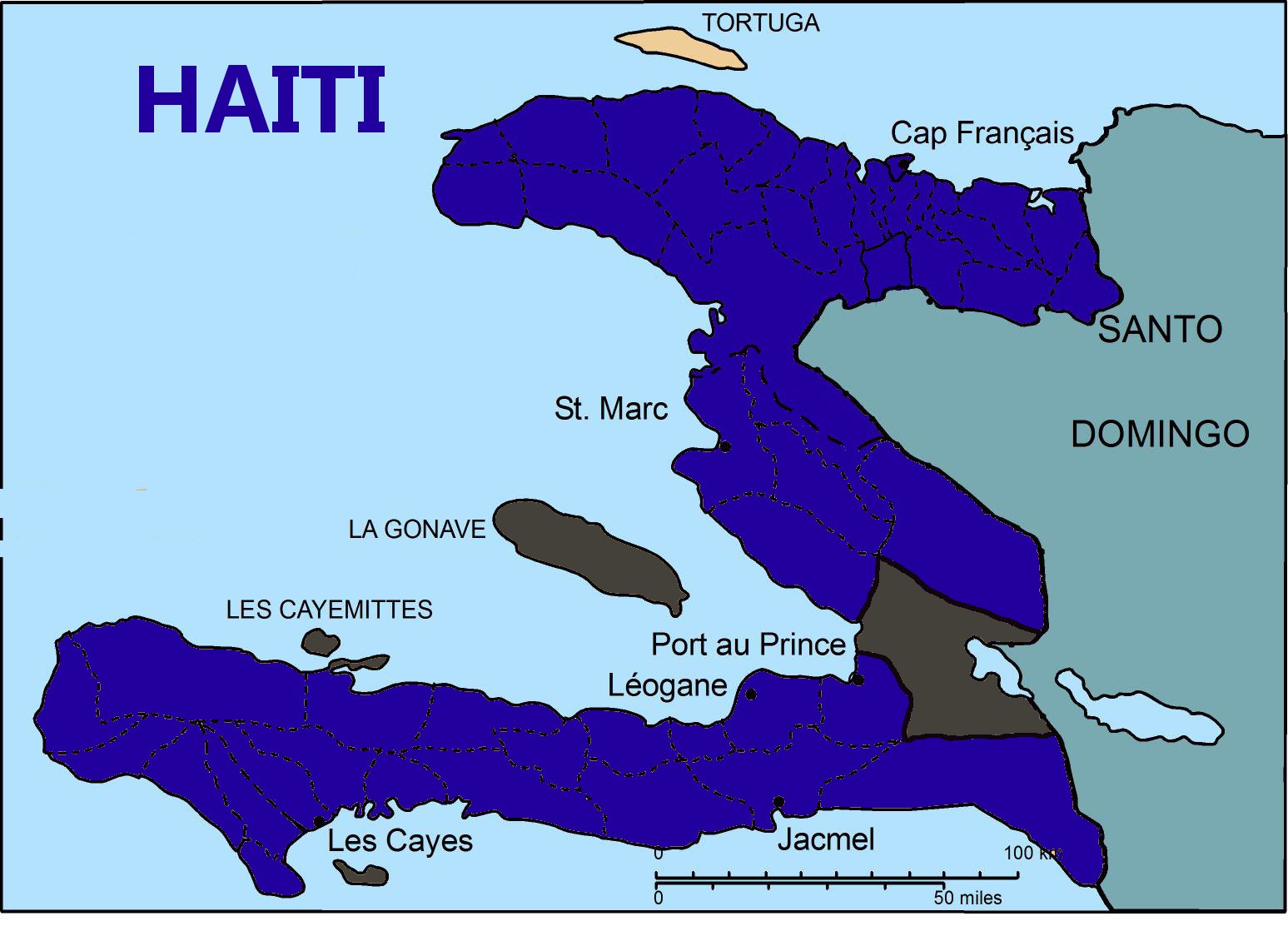 1547x1136 =Economy= - =Economic Sectors= Agriculture: 83% Manufacturing: 7% Trade: 10% Growth Rate: -3% = Unemployment: 24% =Government= 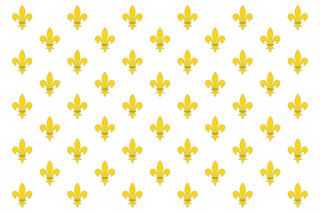 320x213 The Constitution of 1793 is a provisional document, most of it untested. - Popularity: Somewhat Poor System: Unitary Republic  179x250 Legitimist King: Louis XVI de Bourbon/Gantolandon (gantolandonsa@gmail.com)
Supporters: Nobility, Emigres, Moderates Laws of Succession: Agnatic Primogeniture Heir Apparent: Dauphin Louis-Charles de Bourbon (Age 7) (unplayable, location unknown)  221x250 President: Louis Philippe I, “Citoyen Egalité”/Colonel Wood (sacolonel.wood at gmail.com)
Supporters: Petit bourgeoisie, Jacobins 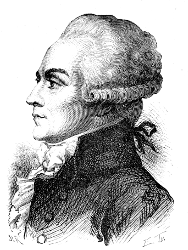 188x250 Prime Minister: Maximilien de Robespierre/sniper4625 National Assembly: 700 Seats (250 Jacobins, 150 Orleanists, 100 Independents, 200 Empty) Elections: Members of the National Assembly are elected every year on a national basis. There is one deputy for every 40,000 citizens. President is elected every four years. Suffrage: All men over the age of 21. =Foreign Relations= Holy Roman Emperor: War/Bad Prussia: War/Bad Great Britain: War/Very Bad Russia:: Peace/Bad Poland-Lithuania: Peace/Good Spain:: Peace/Very Bad Sweden: Peace/Mediocre Denmark-Norway: Peace/Bad Brittany: War/Extremely Bad Portugal: War/Mediocre Sardinia: Peace/Bad Naples/Sicily: Peace/Bad Dutch Republic: War/Bad Switzerland: Peace/Mediocre Ottoman Empire: Alliance/Good USA: Trade Agreement/Mediocre =Cabinet= The choice and dismissal of Ministers appertains solely to the President. The members of the Legislative Assembly may not be appointed. All powers exercised by the President must be approved by at least one other minister before it can take effect. Most minister’s executive privileges have been temporarily suspended.  222x250 Minister of Foreign Affairs: Georges Jacques Danton/Kellsterik (theninedynine at gmail) The Minister of Foreign Affairs is tasked with maintaining relations with foreign nations and the protection of French citizens abroad. Given the sheer number of war declarations coming in daily, he is doing rather poorly.  246x250 Minister of War: Gilbert du Motier, Marquis de Lafayette/ a bad enough dude (ehoovestol@gmail.com) The Minister of War has total control over the French Army and is responsible for the protection of French border provinces. Given international hostility toward France, the execution of this duty may be difficult. 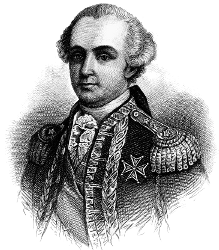 219x250 Minister of the Marine: Charles Hector, comte d'Estaing/tatankatonk (tatankatonk22@gmail.com) The Minister of the Marine has jurisdiction over all seafaring French vessels and the colonial territories. It is his duty to ensure the protection of trade.  215x292 Minister of Justice: Marguerite-Louis-François Duport-Dutertre/ZearothK (zearothk@trioptimum.com) The Minister of Justice is responsible for all judicial affairs within France and ensuring the rule of law is maintained.  490x346 Minister of Finances: Louis Philippe the Younger/Servant (igorhorst at gmail.com). The Finance Minister is charged with maintaining state finances, agriculture, industry, commerce, roads and estates. Due to the poor state of the French economy, the position is in a state of turmoil and officials here rarely last long. =Factions=  320x214 - Club des Jacobins  237x250 Radical Republican (Montagnard) wing led by Louis Antoine Léon de Saint-Just/Epicurius (epicurius at aol.com). Liberal Republican (Girondin) without leadership, most fled. Faction is predominantly Montagnard. The Jacobins are the radicals of the French Revolution. They now call for increasingly extreme measures, like the abolition of the Catholic Church and the extermination of all enemies of the state. Their headquarters has been destroyed in a mysterious bombing. Represented by the colour red. - Parti Orléanist  490x346 Conservative wing led by Louis Philippe de Bourbon/Servant (igorhorst at gmail.com), Moderate wing led by the Marquis de Lafayette/a bad enough dude. The Orléanists have adapted somewhat well to the changing situation in France. They are divided into two factions, with one supports major reforms to the Constitution to stabilize the nation, the other a more slow process to allow for stability. - Monarchistes Français 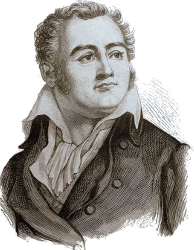 194x250 Reactionary Monarchist, led by Georges Cadoudal/Arujei (rjohnlennon@gmail.com) Although they are not represented in the Legislative Assembly, this group represents an alliance between members of the former aristocracy, who wish to see a return of the absolute monarchy and landed aristocracy, and marginalized minorities like the Bretons who chafe under the centralization of the state. Although many fled following the ratification of the Constitution, those who remain in France have strong funding from outside parties. Both Jacobins and Feuillants are terrified of these émigrés because of their ability to influence French politics. - Les Enragés 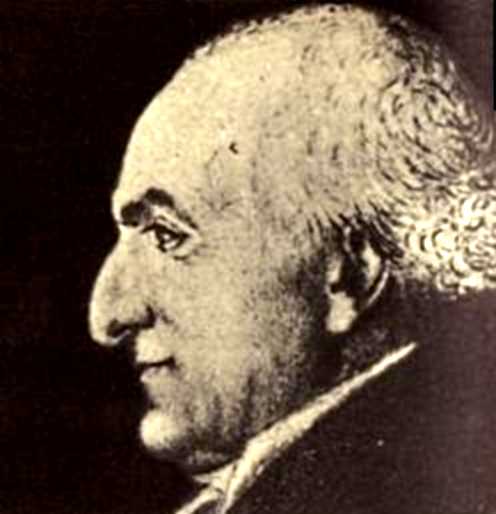 496x514 Babeufist (Populist Left), led by Jacques Roux/Stalingrad (stalingradlenin@gmail.com) (OUTLAWED) The crippling bread prices and a general lack of work in Paris have given some popular support to a movement that might otherwise have been a footnote of history. Even more radically left than the Jacobins, the Enragés rely on the support of the common man and encourage a thoroughly radical revolution. With the death of Babeuf and the betrayal of Madame Gouges, they rely solely on Roux for leadership. Departments: Following the ratification of the French constitution, the provinces of France were destroyed and the lands of the aristocracy dissolved. In their place, the Legislative Assembly established 82 departments. Each department is ruled by an Administrator and receives three representatives in the Legislative Assembly, except Paris which receives only one. =Newspapers= L'Ami de la France Editor: Prince-Royale Louis Philippe Ideology: Orleanist Readership: Middle class, some readers in the aristocracy. Headlines: “SUPPORT YOUR KING: THE TRUE PATRIOT OF FRANCE,” “LOUIS THE TRAITOR, LOUIS CAPET” L’Ami du Peuple  200x246 Editor: Jean-Paul Marat/pattersongsa@gmail.com and Saint-Just Ideology: Radical Republican Readership: Middle class exclusively. Headlines: “REFLECTIONS ON THE RIGHT OF PROPERTY” “WHAT THE HELL IS HAPPENING IN OCCITANIA?” “DE SADE DID WHAT?: EXCLUSIVE INTERVIEWS” Le Père Duchesne 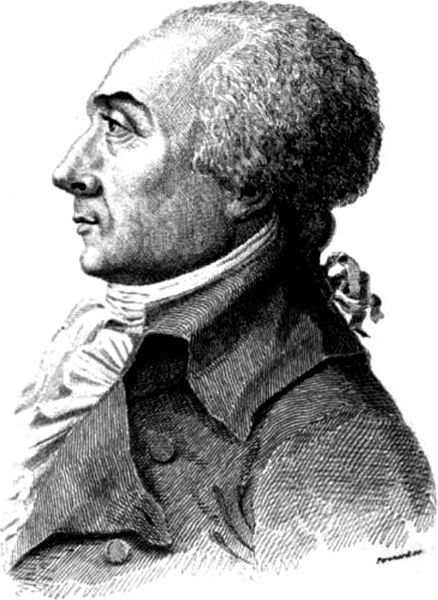 438x600 Editor: Jacques Herbert/SexyBlindfold (estafortaleza (at) gmail (dot) com) Ideology: Radical Republican Readership: Urban poor, Parisian lower class. Headlines: "FUCK. LOOK AT THIS GOD DAMN MASSIVE HOLE IN THE MIDDLE OF FUCKING PARIS. YOU ARE WELCOME, PARIS.” “10 TIPS TO SURVIVE THE WINTER” “WHERE THE FUCK IS ROBESPIERRE?” Breiz Atao Editors: Georges Cadoudal and Armand Tuffin Ideology: Breton Nationalism Readership: Bretons, aristocracy, some supporters in France Headlines: "THE GROWING MADNESS IN PARIS, HOW GLAD WE ARE WE ABANDONED SHIP”, “MARIE V. XAVIER, ELECTION 1792”, “OUR FRIENDS, THE BRITS” =Military=  256x270 The French military has initiated major reforms since the establishment of the Republic. Although France still struggles from defections and difficulty training soldiers, these problems are slowly being resolved. At the moment, France’s most pressing concern is the First Coalition who threatens to destroy the nation and its people. Grande Armée de la République  192x250  194x250  196x250 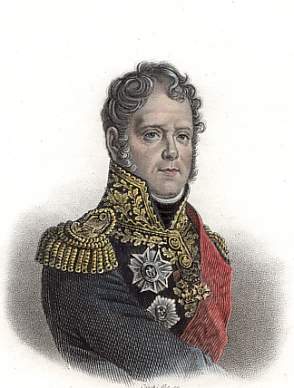 294x388 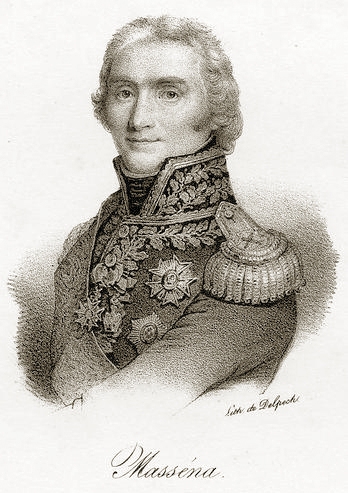 348x493  1395x1860 Maréchal de France: Alexis Le Veneur de Tillières/AndItsAllGone (anditsallgone@gmail.com) Forces: 160866 soldiers, 11,353 cavaliers, 324 cannons Organization: 2 corps, 10 brigades, 50 regiments, 500 companies --- l’Armée du Nord (Royalist) [22970 soldiers, 5853 cavaliers, 150 cannons. Breton border. Jean-Baptiste Donatien de Vimeur, Comte de Rochambeau/stalin-chan (stalin@c0balt.com)] --- l’Armée du Nord (Republican) [44051 soldiers, 500 cavaliers, 2000 patriottes, 50 Cannons. Lille. commanded by André Masséna/Viscardus] --- l'Armée du Rhin [31500 soldiers, 5000 cavaliers, 70 Cannons. banks of the Rhine. Alexis Le Veneur de Tillières/AndItsAllGone (anditsallgone@gmail.com)] --- l’Armée Expéditionnaire [17345 soldiers, 30 cannons. North. Napoléon Bonaparte/YF-23 (yfaltmiau at hotmail dot com)] --- l’Armée du Centre [45000 soldiers (15,000 from the National Guard), 1,000 cavaliers, 24 cannons. Paris. Général Lafayette/a bad enough dude] ---- l’Armée des Pyrénées [Mobilizing. stationed at Spanish Border, Général Joseph Marie Servan de Gerbey/A RICH WHITE MAN] --- l’Armée des Alpes [Mobilizing. stationed at Grenoble, Général Michel Ney/rakovsky maybe (rakovskymaybe@gmail.com)] French Navy 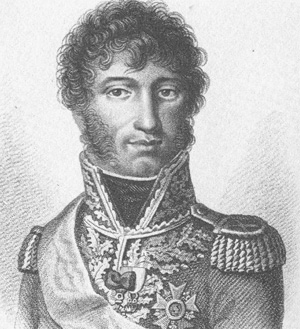 300x329 Admiral: Joachim Murat/vacant Forces: 71 ships of the line, 61 frigates, 45 corvettes, sizable merchant marine Organization: 2 fleets, several smaller patrols --- Flotte de l’Atlantique [assigned 40 ships of the line, 30 frigates. Blockading Brittany. commanded by Louis Thomas Villaret de Joyeus/vacant] --- Flotte de la Méditerranée [assigned 31 ships of the line, 26 frigates. based in Toulon. commanded by Louis-Armand de Rohan Constantine/vacant] Situation: New command structure, many remaining officers skeptical. Many vessels in disrepair. Swiss Guard  250x320 Oberst: Major Karl Josef von Bachmann/Enjoy (sw_faulty at hotmail dot com) Forces: 130 guardsmen (in prison), 100 guardsmen with the Dauphin Situation: Highly trained, highly effective mercenaries serving as the King’s personal guards. Their forces were recently shattered by the National Guard in an assault on the Royal Palace. The Swiss government is outraged by the slaughter of their citizens and struggling on how to respond. National Guard  246x250 Commander-in-Chief: Gilbert du Motier, Marquis de Lafayette/ a bad enough dude (ehoovestol@gmail.com) Forces: 15787 National Guardsmen, 12 American advisors, 12 cannons Situation: Fair morale stabilizing and poorly organized. Training is underway and discipline steadily improving. Recruits are drawn mostly from the middle class, with some among the poor. =Foreign Threats= 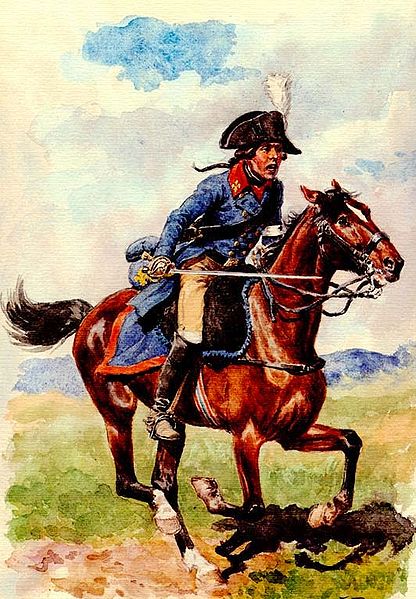 416x599 L’Armée des Princes Commander: Louis Stanislas Xavier, Regent of France and Navarre Sponsors: Prussia, HRE, Great Britain Forces: 1717 infantrymen, 530 cavalrymen and one squadron of hussars Situation: Recruiting in Brussels. Excellent training, poor morale. Well-armed. Queen’s Association Commander: Various, disorganized Sponsors: Quebecois wealthy, American and British intellectuals Forces: 700 fighters (Montreal), 500 fighters (Philadelphia), 175 fighters (London) Situation: Extremely well-armed and high morale, but non-existent training. ‘Fighters’ consist solely of armchair intellectuals and bored upper class. =Rebellions and Militias= Babeufist Farmer’s Revolutionary Collective Leader: Gaius Gracchus, Tribune of the People/vacant Ideology: Babeufist Popularity: 15% in Picardy Forces: 4301 peasants Situation: Organized following the death of Babeuf and the uncertain future Babeufists face in France. Some support undercut by the Land Reform act. Ar Diebiñ Bretoned Leader: Georges Cadoudal Ideology: Breton Nationalism / Conservatism Popularity: 35% in Brittany Forces: 3890 peasants, 40 noblemen Situation: Recently distributed muskets and farming instruments. Aid from unknown source has stopped due to blockade. Some training. Great morale. La Garde Révolutionnaire Leader: Olympe de Gouges Commanders: Olympe de Gouges Ideology: Women’s Liberation Loyalties: Mostly Enragés, with some Jacobin sympathies Popularity: 1% in Paris Forces: 787 sans-culottes, 227 “working women” Situation: Volunteer militia formed after the March on the Champs-Élysées, made up of disenfranchised peasants and artisans. After betraying Babeuf, many deserting the organization! La Garde Libre/The Cambions 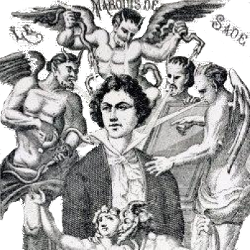 250x250 Commander: Napoleon Bonaparte Administrator: Donatien Alphonse François, Marquis de Sade/Fall Sick and Die (ccferrara@gmail.com) Ideology: Far Left/Anarchism Popularity: 2% in Paris Forces: Unknown Situation: The main fighting force in Louisiana. Morale is high but training is virtually non-existent. Napoleon is attempting to introduce some much needed organization into the group Haiti 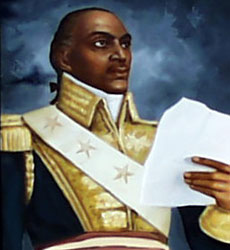 230x250 Governor-General: Toussaint Louverture/EccoRaven Ideology: Abolitionist Popularity: 85% among black Haitians, no support in Metropolitan France Forces: 28,210 slaves, 3 cannons, 1 mortar Situation: Morale is very high, training is mediocre but improving. Occupying all of Saint-Dominique Other Important Individuals and Groups: Archdiocese of Paris With the confiscation of church property and the subjugation of the clergy to the state, the influence of the church hierarchy on France is theoretically minimal at best. In reality, however, many voiceless Catholics still place their church first, and no one is in so good a position to take advantage of that trust as the Archbishop of Paris.  173x250 Archbishop: Antoine-Éléonor-Léon Leclerc de Juigné/Cozy Hemp Mines (Cozyhempmines at googlemail) American Embassy to France Although he may not wield significant power on the European stage, the American ambassador and his government serve as symbols of democracy and republicanism. He has gotten himself into a spot of trouble with the Jacobins as of late. Matters are further complicated by the destruction of his embassy.  Ambassador: William Short/Tao Jones (sa.taojones at gmail) Swedish Embassy to France The Swedes would seemingly be an irrelevant power were it not for their potential to counter the Russian threat to France.  200x273 Ambassador: Gustaf af Wetterstedt/Hutter British Embassy to France Along with setting British foreign policy concerning France, the current ambassador also has a vast amount of personal wealth to draw upon. 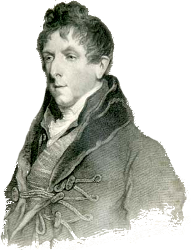 191x250 Ambassador: Duke George Leveson-Gower/Incy (incysa at gmail) Prussian Embassy to France The Prussian ambassador is among the most virulent of enemies of the French state.  191x250 Ambassador: Friedrich-Wilhelm von Franco/Ramba Ral Ottoman Embassy to France The Ottoman Empire is a far off land for most French citizens and a second rate power for most of their leaders. Perhaps their ambassador can change this attitude. 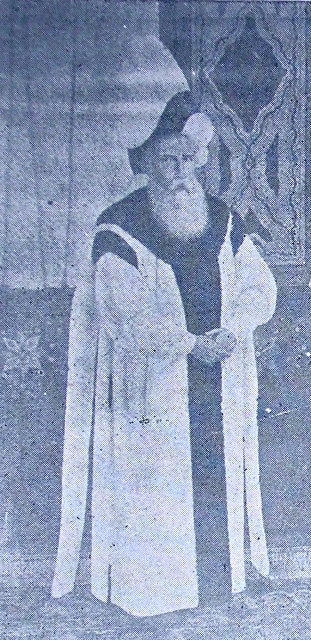 311x640 Ambassador: Koca Yusuf Pasha  209x247 Claire Lacombe/Rincewind Noted feminist and playwright, Lacombe is certain to be an entertaining character of the Revolution.  494x600 Herman Willem Daendels/Brutus Salad (xerxes.ihatespartans@gmail.com) Leader of the Patriottes faction outside of the Netherlands, he seeks the overthrow and end of the autocratic Dutch Republic and the institution of a true republic in the region. To this end, he has cast his lot in with the French. 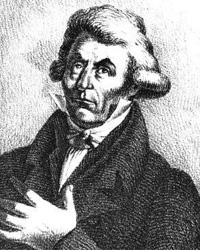 200x250 Alexis-Vincent-Charles Berbiguier de Terre-Neuve du Thym/Sword of Damocles (praeaton@gmail.com) A “demonologist”, this man has recently been seen in the company of the Swiss Guards. 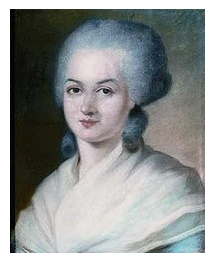 216x268 Marie Gouze/Maxico Roberto (maximo . roboto on Gchat) Although initially in support of the Revolution, Marie Gouze was disenchanted when she learned women would not be allowed to participate. She is an influential writer in Paris but extremely controversial.  220x277 Madame Roland/vacant The wife of noted Jacobin Jean-Marie Roland, the Madame exerts a great deal of influence over her husband and through him the members of the Legislative Assembly.  183x250 Louis Stanislas Xavier, comte de Provence/Takanago (ktakanago@gmail.com) The younger brother of the King of the French and the de facto leader of the émigrés outside France. His recent declaration of regency is a threat to the stability of the country and is currently recognized by most of Europe, as well as the King himself. =Stats= 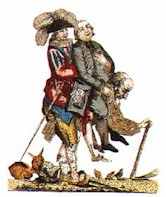 Agriculture: Undercapitalized with below average average crop yields. Poor harvests have lead to unfavorable conditions for local markets. Situation was improving, but blockade means France will have to be self-sufficient. Industry:: Mostly textiles, with some mining and metalworking. Stabilized somewhat by ample subsidies and an influx of cotton from America. American markets also proving quite amenable to French manufactures, but British blockade threatening to rob this avenue from France. New projects in the Rhine under construction. Food: Mild famine has resulted in a massive spike in prices but agricultural investments have resulted in a minor improvement in diet. Brittany is struggling heavily but surviving. Nobility and bourgeois eat well. Diet quality in Paris is on the decline. Labor: No restrictions on working hours or hiring practices Education: 47% literacy for men, 35% for women. Based on the apprenticeship system, with Catholic seminaries being used as an alternative for poor families. Some seminaries expanding admission thanks to education budget increases. Private tutors used for nobility. Public Health: Major cities contain small sewers but require updated water systems. Health care largely provided by the clergy, who now receive funds from the state for that purpose. Crime: Approximately 3,660 officers are used to defend strategic sites like the palace, royal mint and major roadways. Well-organized and trained but corrupt. Trade: France receives a large influx of goods from her colonies. However, her exports have fallen out of favor within Europe itself. America recently established as trade partner. Colonies: Mostly in the Caribbean and India, holdovers from numerous unsuccessful wars against Britain. Slavery is widespread and forms the lifeblood of the overseas economy. Compromise with Toussaint a complete failure, sugar trade has been diverted to England and colony likely to rebel again. Finance: Assignats have largely replaced the livre as the de facto currency of France. Inflation steadily increasing thanks to Robespierre’s budget. Urbanization: Less than a quarter live in cities. Population growth primarily in rural areas. Religion: Catholics dominate political life but Calvinists and Jews are tolerated. The Civil Constitution of the Clergy makes priests direct employees of the state. Ethnic Groups: 53% French, 46% Occitan, 1% Corsican. Official toleration of local languages but increasing momentum towards French as the sole language of the state. =Budget= Due to the poor economic policies of the monarchy, the treasury of France was bankrupt by the time the Constitution was enacted. In order to ensure economic stability, church property was forcibly seized and used as a standard for the currency. Despite the decrease in royal power, a large portion of the yearly budget was used to build and maintain the property of the nobility. As a consequence of underfunding the police and low accountability among tax collectors, Revolutionary France often had difficulties collecting taxes. quote:Contributions Directes: Kentoc'h mervet eget am zoatran- A  800x534 Country: Ar Dizalcʼh Votadeg Dugelezh Breizh (The Independent Elective Duchy of Brittany), established 8 November 1791 by the ratification of the signing of the Breton Declaration of Independence Foreign Relations: Excellent relations with the United Kingdom, good relations with the Papal States, good relations with Prince-Bishopric of Liège, neutral relations with the United States, at war with the French Republic Population: 1,680,000 Year: Winter 1792 (turns represent 3 month seasonal cycles) Metropolitan Brittany 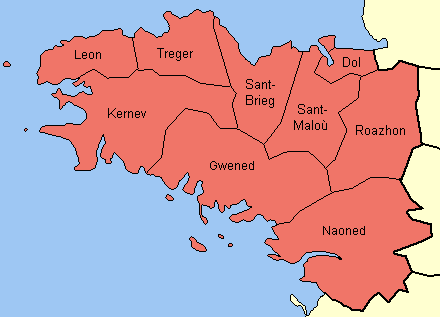 440x317 =Economy= =Economic Sectors= Agriculture: 88% Manufacturing: 12% Trade: 0% Growth Rate: 2% = Unemployment: 17% =Government=  320x213 Popularity: Good System: Unitary Elective Duchy  179x250 Duke: Loeiz II ar Vourboned/Gantolandon (gantolandonsa@gmail.com)
Laws of Succession: Agnatic-Cognatic Elective Heir Apparent: To be decided. Likely Heir: Mari Tereza Charleza ar Vourboned/vacant Noble Assembly: 145 Seats (85 Marians, 60 Patrilinealists) Popularity: Mediocre Steward of the King: Charles Armand Tuffin, marquis de la Rouerie/Gorgo Primus Elections: No elections held. Suffrage: None at the national level. Nobles cast votes for Duke upon the death of the preceding Duke. =Royal Council of Brittany= The Royal Council of Brittany was created on 5 November 1792 with the goal of improving administration within Brittany. Although technically membership is determined by the Duke of Brittany, in practice the Steward of the King is responsible for the body and its upkeep.  194x250 Veur Chancellor: Georges Cadoudal/Arujei (rjohnlennon@gmail.com) The Veur Chancellor’s duties are strongly based off the position of Foreign Minister in the French government. He is charged with diplomacy, foreign affairs and maintaining national morale. As a newly established nation, Brittany’s primary goal will be to gain recognition by other states.  220x277 Veur Marshal: Aimé Picquet du Boisguy/vacant The Veur Marshal represents a revival of ancient feudal tradition. With a focus on military matters and war, the marshal’s responsibilities are all that stand between independence and annexation. 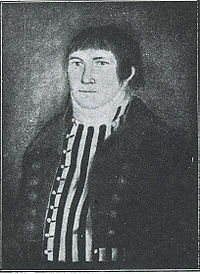 200x274 Veur Steward: Auguste de Bonteville Hay/Vacant Unlike France, Brittany has few economic woes. It is a new nation, with bright economic prospects ahead of it. The Steward determines the budget, oversees tax collection and ensures the authorized use of funds.  194x250 Veur Spymaster: Georges Cadoudal/Arujei (rjohnlennon@gmail.com) In most states, the ‘secret service’ does not constitute an official part of the government and exists in a legal grey area. Not so in Brittany. Overseer of all domestic and foreign intelligence, the spymaster serves as the official eyes and ears of the government.  173x250 Veur Chaplain: Titular Archbishop Antoine-Éléonor-Léon Leclerc de Juigné/Cozy Hemp Mines (Cozyhempmines at googlemail) The Chaplain is responsible for matters of religion and culture within Brittany and is the Catholic Church’s foremost representative in Brittany. The position is an interesting one in that it is not subject to government regulation and appointment appertains solely to the Pope himself. Other Important Individuals and Groups:  407x500 Madame Royale Mari Tereza Charleza ar Vourboned/vacant Marie recently escaped Paris thanks to the efforts of her parents. As a symbol of the Legitimist monarchy, she remains in immense danger. Only time will tell who this thirteen year old princess will become. =Stats=  Agriculture: Poor, farm focused economy. Slow improvement because of foreign imports and exports Industry: Exclusively textiles. It is not clear whether Brittany qualifies for the Free Trade Compact with the US, as such rates of sale tends to vary drastically Food: Although food is scarce, the situation is improving thanks to British and Ottoman aid as well as government food programs. Labor: No restrictions on working hours or hiring practices Education: 39% literacy for men, 28% for women. Based on the apprenticeship system, with Catholic seminaries being used as an alternative for poor families. Private tutors used for nobility. Public Health: Major cities contain small sewers but require updated water systems. Crime: Underfunded system in place for crime and punishment. Remnants of the old French system still in place but barely functioning Trade: Limited trade with foreign nations thanks to ineffective blockade Colonies: No interest in colonies, especially in a time of crisis. Finance: Lack of trust in new currency, the Breton florin, exclusively minted in Breton provincial capitals. Urbanization: Less than a fifth live in cities. Population growth primarily in rural areas. Religion: Catholics dominate political life. Religion reasserting authority under Breton homerule. Ethnic Groups: Mostly Breton, with Frenchmen clustered on the border. Sporadic attacks occurring on French speakers in the region. =Military= Army of All Brittany 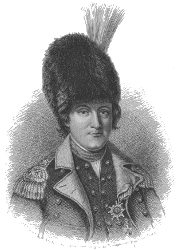 177x250 General: Charles Armand Tuffin, marquis de la Rouerie/Gorgo Primus Forces: 7,100 soldiers, 300 cavaliers Organization: None Situation: Border patrol along the Loire and up through Normandy. Numbers seem to increase with each victorious battle. Good morale, very poorly trained. About half of the men have arms fitting their duties. Sharpshooter regiment has experimental new rifles. =Budget= quote:Contributions Directes:
|
| # ? Nov 24, 2012 20:59 |
|
A Brief History of the United States of America: 1789-1800 Taken from “The Compleat Textbook Series: Early American History” By Walter X. Fuentecilla (Principal Author) Sydney, Kingdom of Australia (c) 1920 Eagle Publishing Company: Sydney. Used with permission Chapter 3: The Election of 1792 The Election of 1792 exposed the US Constitution for what it truly was, a poorly miscarried mandate written by extremely flawed men. Although the structures put in place by it stood quite well under one party control, its carefully constructed articles crumbled when faced with multi-party elections. The system was broken. So went Election Day. Despite some misplaced optimism, November 6th, 1792 concluded with neither side achieving a clear mandate to rule. Jefferson, despite achieving the most electoral votes of any candidate, failed to achieve the majority necessary to become President. Had he been able to achieve a minor margin of popular votes, this failure would have assuredly been deemed insubstantial by the Supreme Court who deemed stability more pressing than legal consistency. Unfortunately, Hamilton managed to rile more votes than any of his opponents. Even this could have been excused had he achieved a contiguous voting bloc, but he was vanquished by ‘His Rotundancy’ John Adams whose monopoly on Massachusetts deprived Hamilton all New England. The Electors met on December 17th, with little incident, except in Delaware where one of Hamilton’s sworn delegates defected to sitting President Washington, in a desperate attempt to draft Washington. On January 6th, the votes were read before Congress and a run-off election was declared. It is now necessary to explain, briefly, the make-up of Congress prior to this emergency session. Although the body had given the illusion of unity and stability to the world up to this point, it was in fact deeply divided into unofficial ‘Pro-Administration’ and ‘Anti-Administration’ factions. Both supported Washington in earnest, but drew their lines with regards to his Cabinet. The Pro-Administration Party, the least deplorable of the two, promoted the policies championed by Secretary of the Treasury, Alexander Hamilton. This included expansion of the purview of the federal government and a rightful rejection of the concept of ‘state rights’. It further saw the necessity to improve ties with Great Britain. The Anti-Administration Party, conversely, was rampantly anti-British and had an inexplicable devotion to the French. Led by Thomas Jefferson, the group promoted a weakening of the US government in favor of the states. Devolution, as it would later be called, was a necessity for individual liberty to flourish. While the Pro-Administration Party had initially maintained control of the House and Senate, by January 1792 the group had lost the Senate and severely tested their control of the House thanks to general bungling. Still, under the American Constitutional System, only a simple majority was needed in the House of Representatives to select a President. So it was, Hamilton was elected almost immediately over the weeping of the Jeffersonians who saw liberty slipping from their unclenched palms. The situation within the Senate was more complicated. While the Anti-Administration Party lacked significant opposition in the Senate and could elect Jefferson as one to the Vice Presidency, they were undone by Burr and his rampant opportunism. As noted in Burr’s own diary, the Constitution made no distinction between ‘Vice Presidential’ and ‘Presidential’ candidates. Although it was expected Burr would take the dive to allow his partner, Jefferson, a place in government, all votes cast for himself remained as legitimate as Jefferson’s. Immediately, Burr began to lobby for his own election and use his connections within the federal government to achieve that. He was joined by bitter Pro-Administration ruffians, who desired to see Thomas Jefferson humiliated on the national stage to end his future prospects. The reaction from the Jeffersonian Anti-Administration members was harsh, the members using every Parliamentary trick at their disposal to deprive Burr of a quick victory. Jefferson severed all ties with Burr and began publicly ruining the man’s reputation, resulting in further damage. By mid-February, no candidate had still been chosen. Washington, disgusted by such blatant factionalism and obstructionism, delivered what is now known as The Washington Farewell Address. It remains Washington’s last public speech before his retirement to Mount Vernon. The speech is a classic statement of republicanism, warning Americans of the political dangers they can and must avoid if they are to remain true to their values. Although he avoids referencing the election itself, at several points he does indirectly refer to those responsible for it. Historians credit the scathing indictment of Congress to the resolution of the Election. The Jeffersonians finally relented after realizing their utter incapacity, allowing Aaron Burr to become the Second Vice President of the United States. In the aftermath of the election, the great rope of the United States had become frayed but still remained whole. However, the events of the following few months including the Philadelphia Duel, the Great Flight and Nullification Crisis would seriously test the Union and result in untold devastation across North America. To those on the ground, it appeared as though the storm had lifted. Had they known this was merely the eye of the storm, events may have progressed very differently.
|
| # ? Nov 24, 2012 21:14 |
|
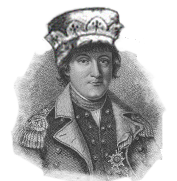 'Steward of the King' Charles Armand Tuffin, marquis de la Rouerie Steward of the Throne of the Elective Duchy of Breizh/Brittany for Duke Loeiz II Official Notice to the Noble Assembly and the Nation - CCed to every Western Government posted:Let it be henceforth known, quote:AN EDICT FROM THE INDEPENDENT ELECTIVE DUCHY OF BRITTANY
|
| # ? Nov 24, 2012 21:37 |
|
 Sorry, mood! Looks like the world wasn't ready for Babeufism. You are free to join as another character if you would like. CVortex and I would love to have you continue. If you are interested in helping us mod the game, we would also be happy. Contact CVortex and myself in that case. Sorry, mood! Looks like the world wasn't ready for Babeufism. You are free to join as another character if you would like. CVortex and I would love to have you continue. If you are interested in helping us mod the game, we would also be happy. Contact CVortex and myself in that case.  quote:
|
| # ? Nov 24, 2012 21:54 |
|
 496x514 Men and Women of Picardie, the death of Babeuf will not be in vain, the revolutionary guard was stolen by the traitor Olympe, who has denounced the revolution! What right does a counter revolutionary organisation have to call itself revolutionary, the men and women within it have been misguided, we are the true revolutionaries, the true feminists, the true radicals, let us form the greatest Republic that has ever been seen by, Man, Woman or God! Learned Men and Women, help me construct a constitution for our People, a document for all people to live by, of all religions, races, sex, as long as people love liberty, justice, brotherhood, sisterhood and equality, all are welcome! Babeuf is not dead, let us not hang our flags at half mast, let us raise it high.  Je suis un Picard! Picard Unité!
|
| # ? Nov 24, 2012 21:59 |
|
Georges Cadoudal Speech to the Nobles of Brittany posted:...Although I have the greatest respect for the brother of our noble Duke, I fear he oversteps his bounds. The laws of Brittany are not the laws of France, as I and the Steward have worked so hard to remind the world. But now you speak of adapting the Salic law for your rulership? You shame the memory of the Duchess Anne, and all the independent lords of this land throughout time with your perfidy! Look no more to France, Breton nobles, for it is only by the brave example of your forefathers and the faith in Jesus Christ the saints have given to us that we shall see through this storm of war. Should the worse come to pass, and I pray to God that it doesn't, all the laws of succession show the the brave Maria to be the rightful inheritor. Do not, in your rightful power, strip a child of her people by injustice. But be ever mindful that you are Frenchmen no more, and to be brave in such facts. Speech to the men of Rochambeau posted:Soldiers. My worst fears have come to pass. The war that I foresaw, that I did everything in my power to prevent, that will engulf all of France, and maybe all of Europe, has begun. Despite my prayers, God has seen fit to punish the sinners of mankind by letting us reap the whirlwind we have sown. For truly we have brought this on ourselves. We have lied, cheated, murdered, been disloyal, hated God and His just commandments -- and all these acts have a natural as well as a supernatural result. If you let go of an apple, does it not fall? If a nation sins, does it not tear itself apart?
|
| # ? Nov 24, 2012 22:18 |
|
 490x346 Louis Philippe de Bourbon, "Citoyen Unité", Minister of Finances War is on the horizon, and French unity must be maintained. We will not fall prey to reactionary monarchism, nor shall we collapse into radicalism. Though some may speak about a split in the Orleanist Party, the fact is, we are united under a common purpose: to protect the besieged French Republic from those who wish to destroy its Revolution. People certainly have a right to difference of opinion, so long as that difference of opinion does not lead to certain people engaging in certain backstabbing of a certain futility over a certain Battle of Signes. And who had that bright idea to bombard Brittany and start arresting the poor? Oh wait, that last action was my fault. I'm going to need another drink.
|
| # ? Nov 24, 2012 22:26 |


























